Waste Management
[3] Waste (WS)
[3.1] 3R (Reduce, Reuse, Recycle) program for university’s waste (WS.1)
In December 2022, the Zero Waste and Environmental Management Coordination was established at Dokuz Eylul University with the aim of systematically improving waste management. Within this framework, “Zero Waste Awareness Educational Seminars” prepared for all students and staff, are being conducted under the leadership of the Zero Waste and Environmental Management Coordination. The primary goal of these training sessions is to emphasize waste reduction in waste management and ensure effective participation in recyclable waste systems.
Within this scope, the Coordination provides training to all administrative and academic units of the University, enabling units to disseminate these trainings to their students and staff. Personnel who have participated in comprehensive training in academic units provide regular training to both students and staff in their respective units. Some of these trainings are conducted online, and training materials have been distributed to the units, with training calendars being requested. The trainings conducted by the units are monitored by the Zero Waste and Environmental Management Coordination, and proof documents are kept.
The Coordination also conducts “Zero Waste Awareness Training for Cafeterias and Canteens,” aiming to involve our University’s canteens and cafeterias in waste reduction, reuse, and recycling processes.
Dokuz Eylul University Hospital personnel receive regular and continuous training on Zero Waste and Medical Waste by our Environmental Engineer affiliated with the Coordination. The Coordination member who is stationed at DEU Hospital two days a week provides recurring training to the employees in their respective units, which include nurses, administrative staff, technical personnel, cleaning staff, and support personnel at the hospital, emphasizing waste recycling and medical waste management. These training sessions are registered on the “Integrated Environmental Information System” of the Ministry of Environment, Urbanization, and Climate Change and acquire an official status.
Dokuz Eylul Üniversitesi, to track the registration and stock status of chemicals used in university laboratories, has developed and implemented a laboratory inventory system. With this system, the chemicals used in the laboratories are identified for each experiment prescription, consumption is tracked, thus preventing excess chemical usage, and reducing waste generation
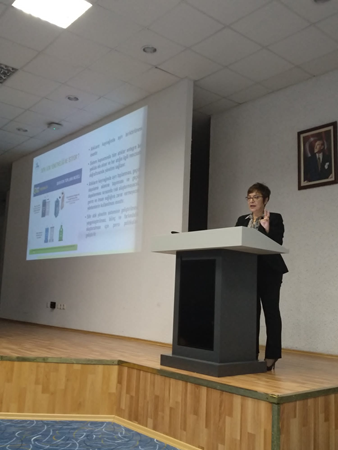
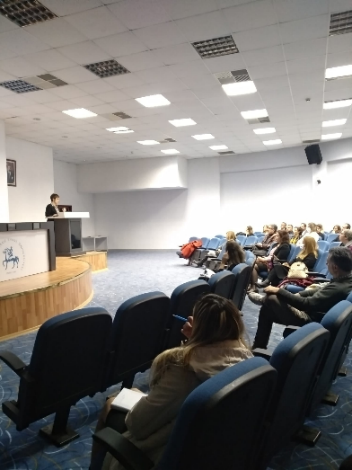
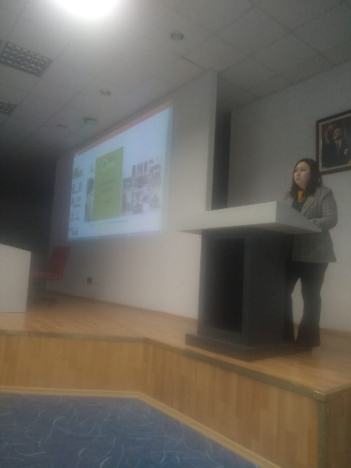
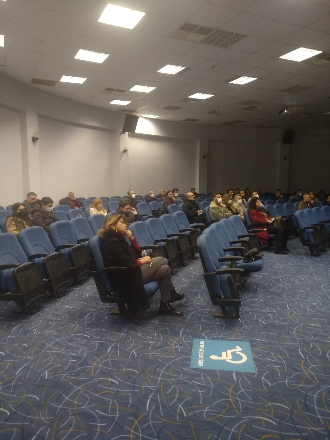
Zero Waste Awareness Educational Seminar (Part 1) Zero Waste Awareness Educational Seminar (Part 2)
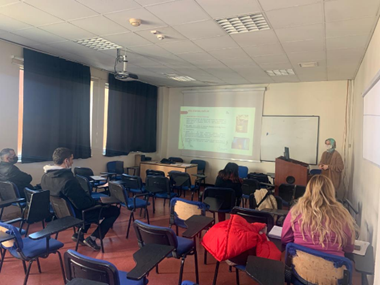
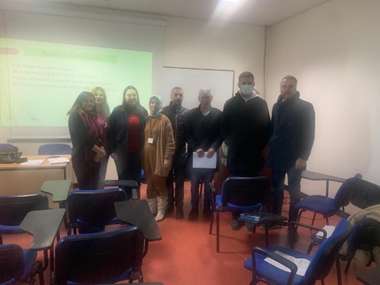
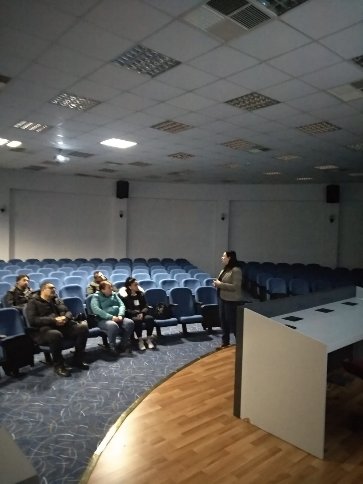
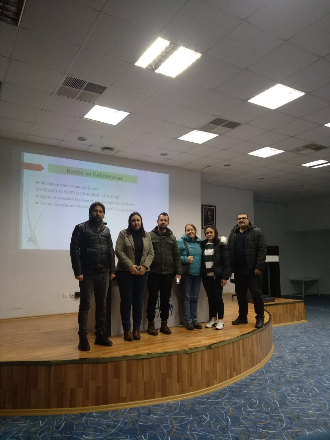
Educational Seminars for Cafeterias and Canteens
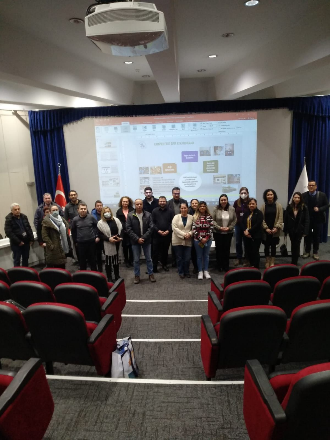
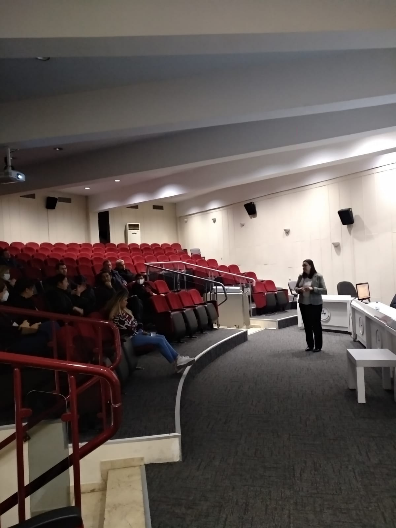
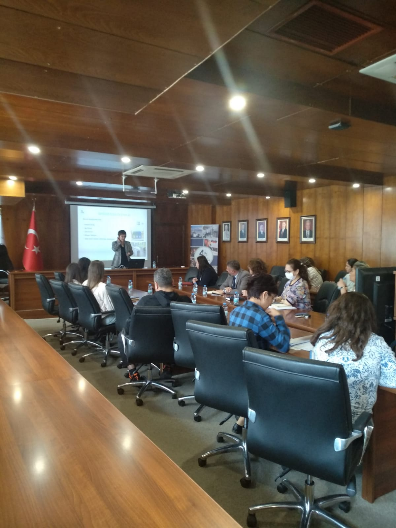
Zero Waste Awareness Educational Seminars for Administrative Personnel
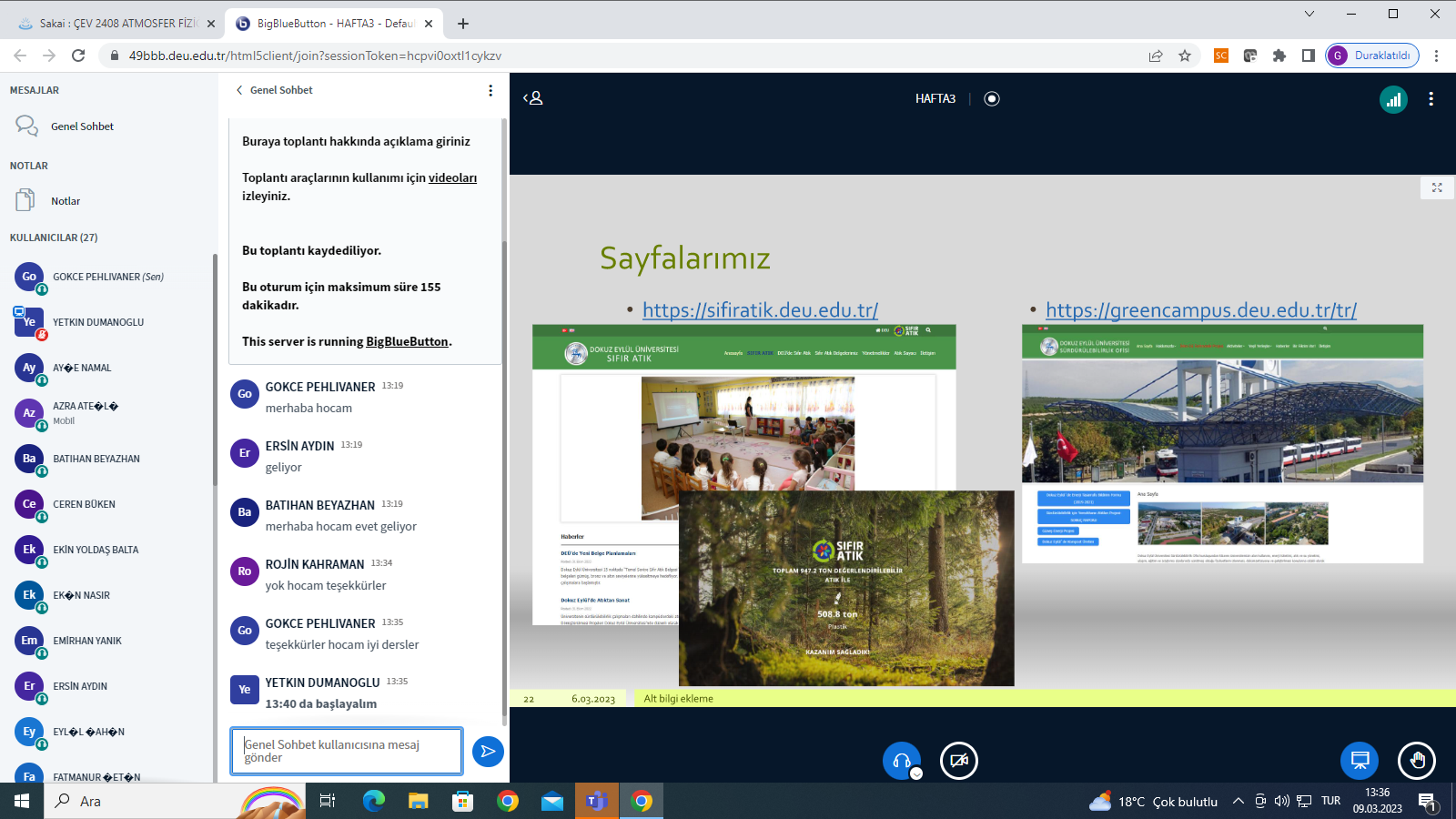
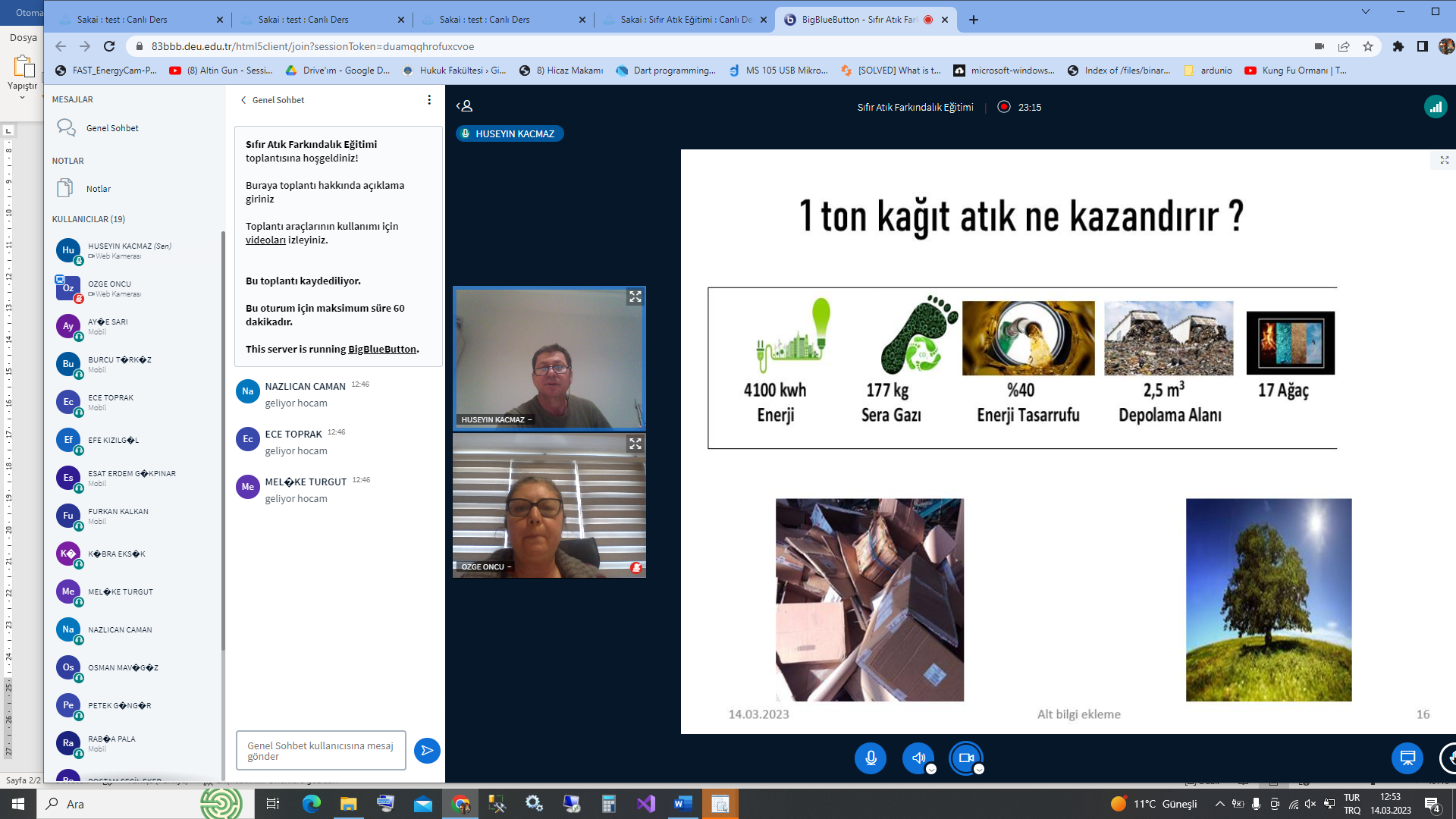
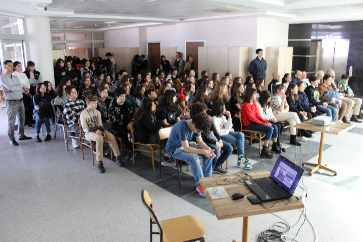
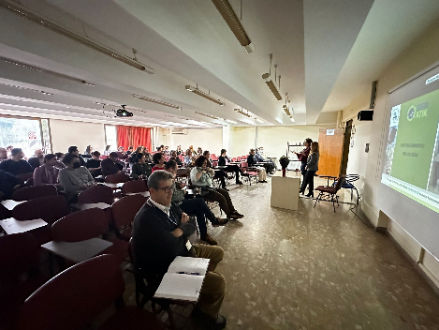
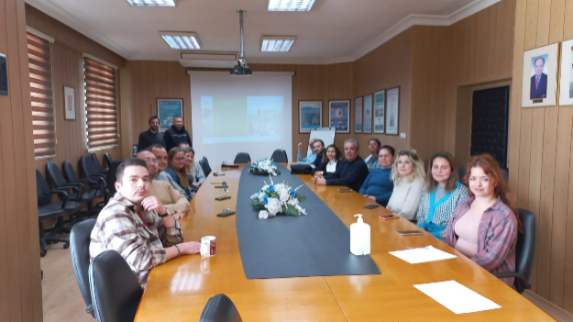
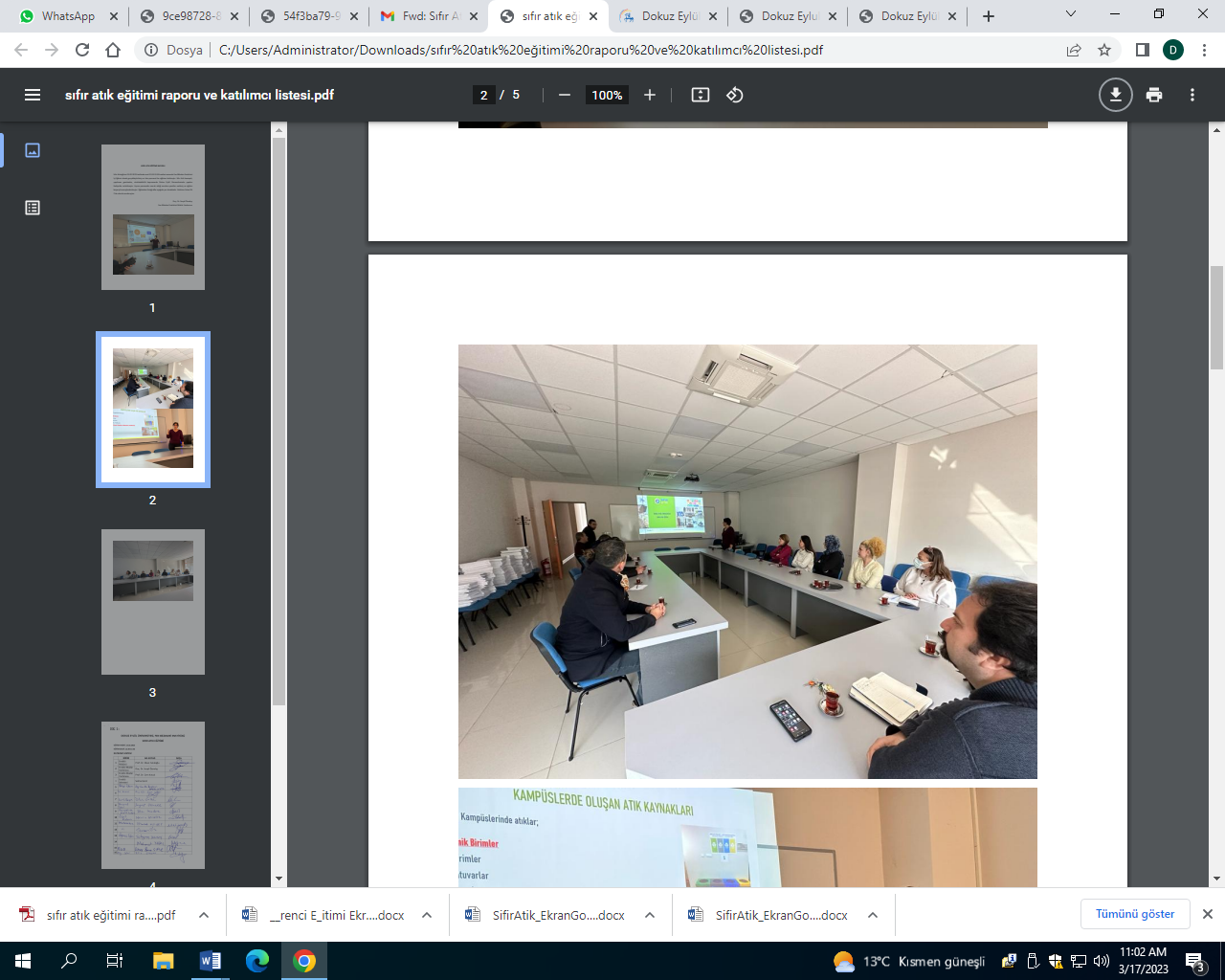
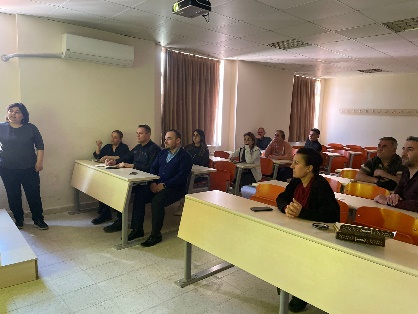
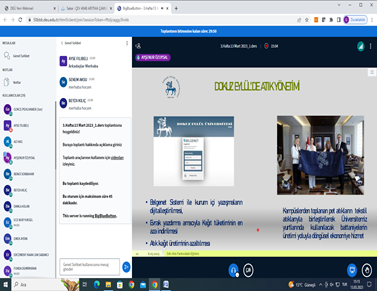
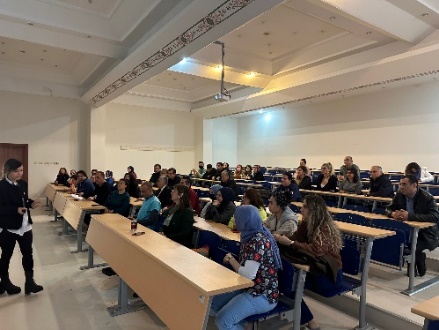
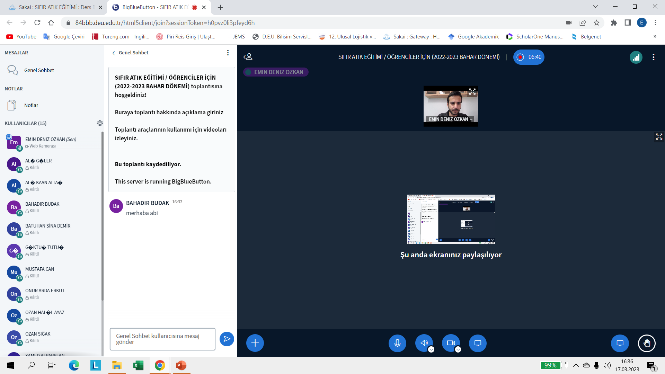
Zero Waste Awareness Educational Seminar Images Delivered from Various Academic Units
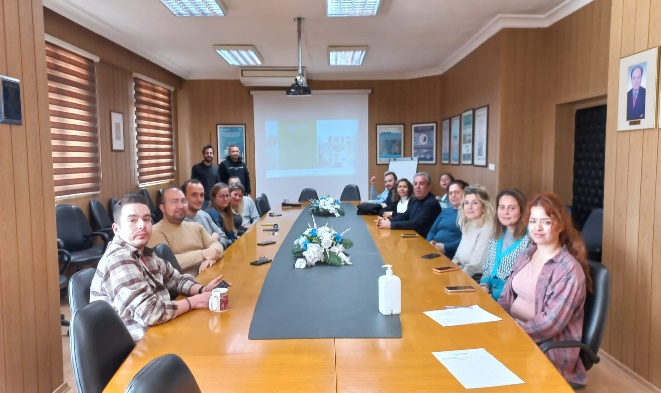
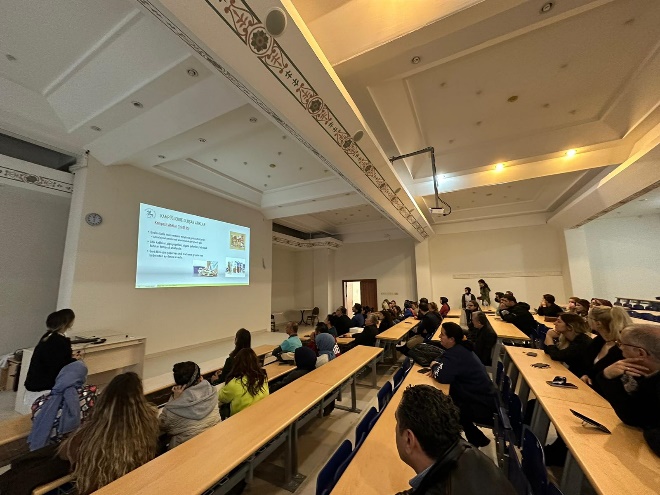
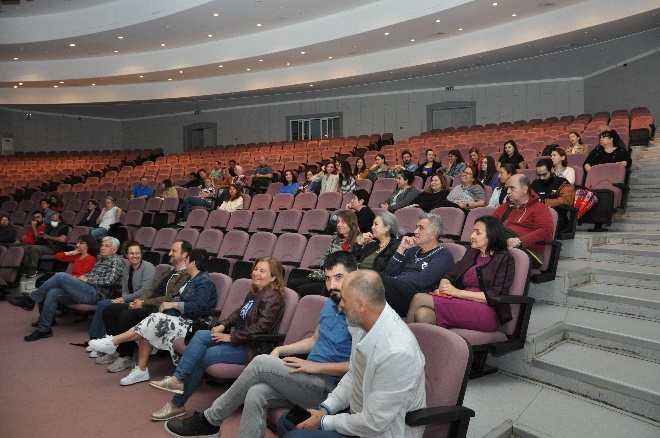
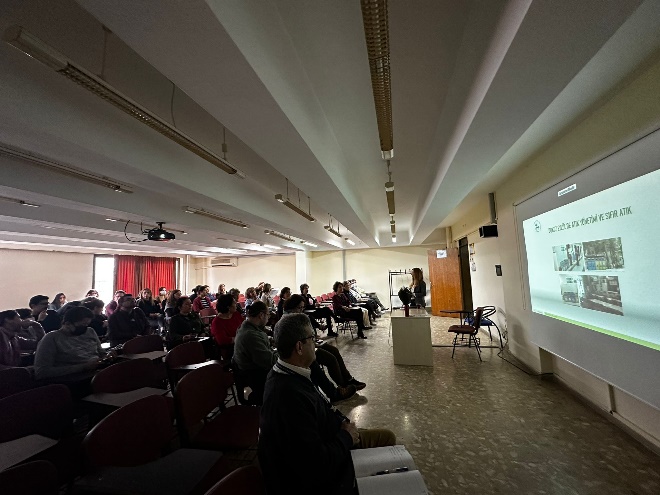
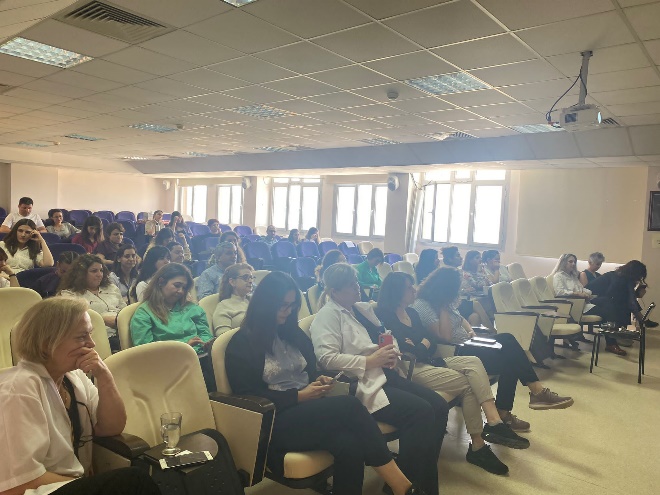
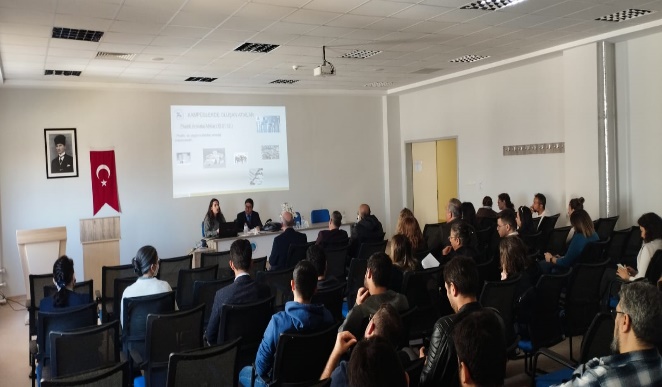
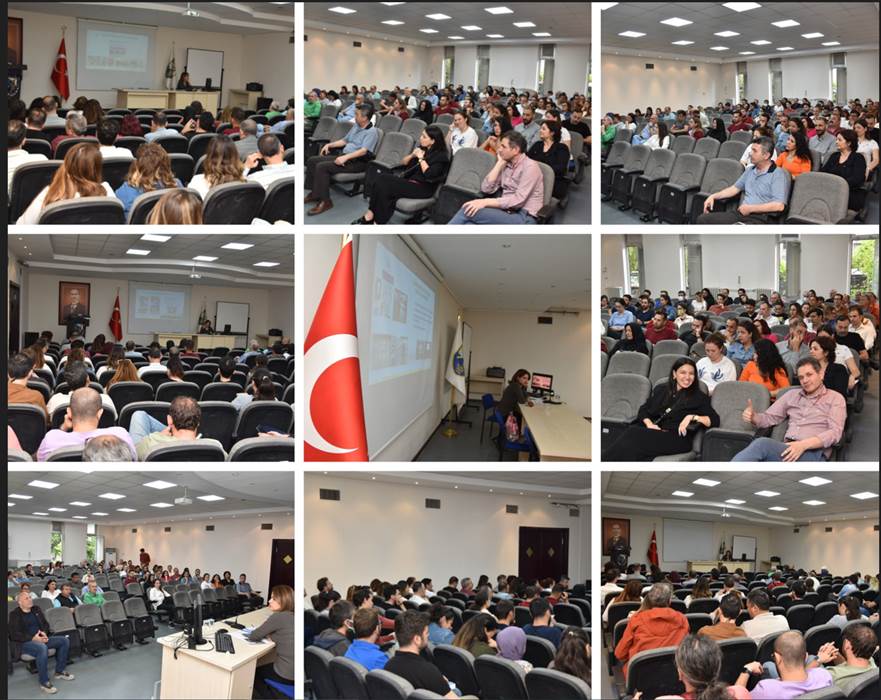
Zero Waste Awareness Educational Seminar Images Delivered from Various Academic Units
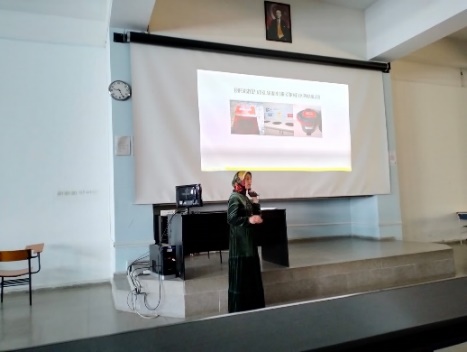
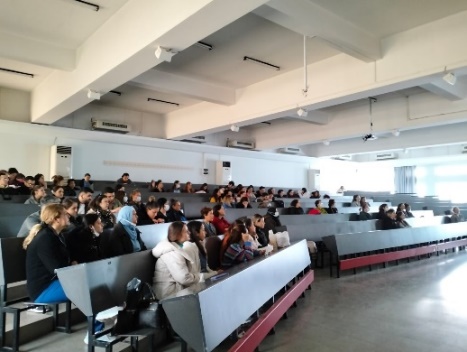
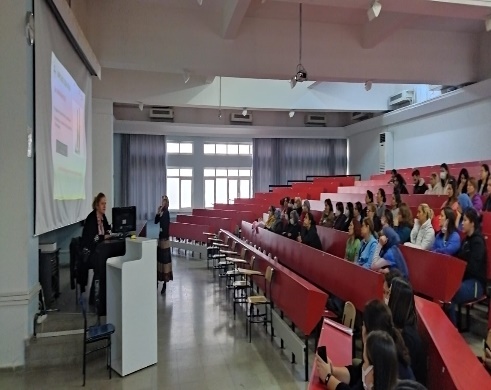
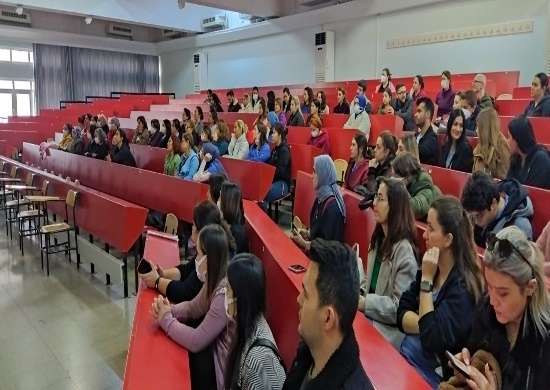
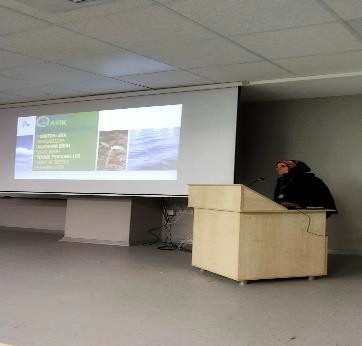
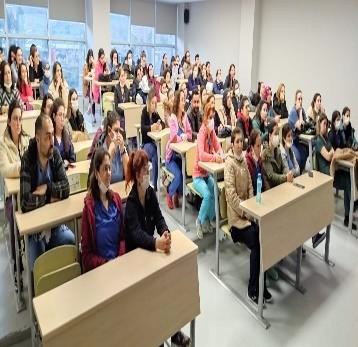
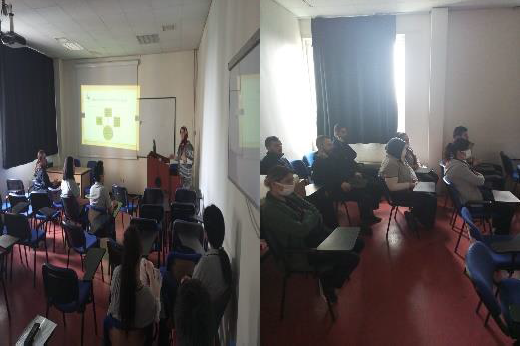
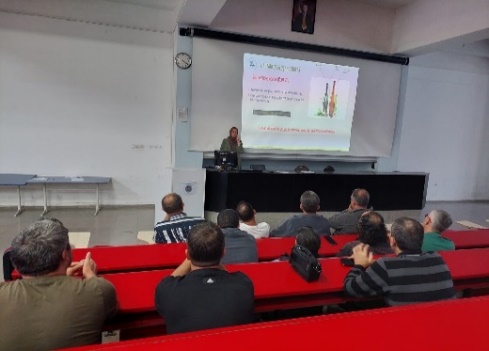
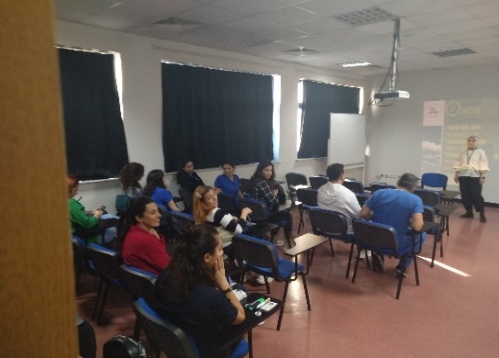
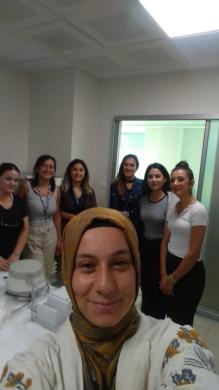
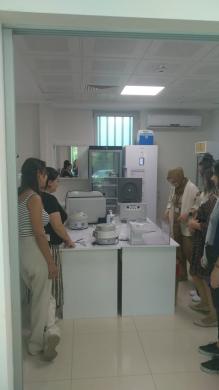
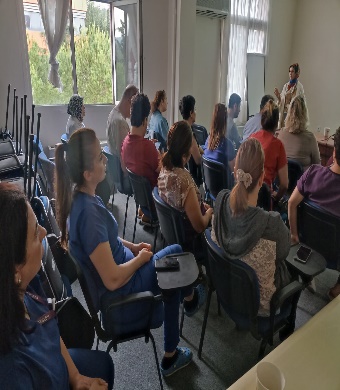
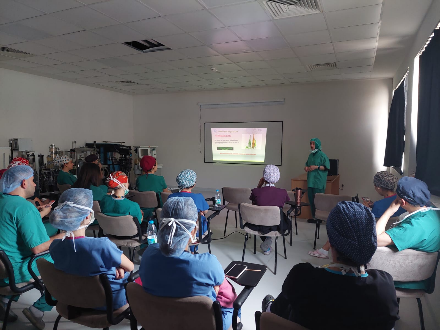
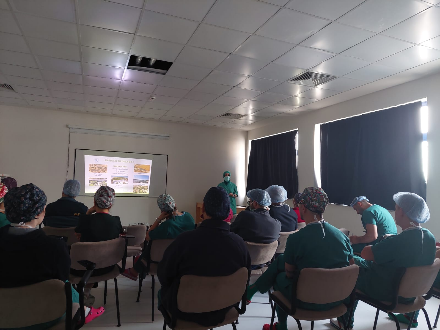
V
Images of Zero Waste Awareness And Medical Waste Management Educational Seminars for DEU Hospital’s Personnel

Slide Show of the Zero Waste Awareness Educational Seminar
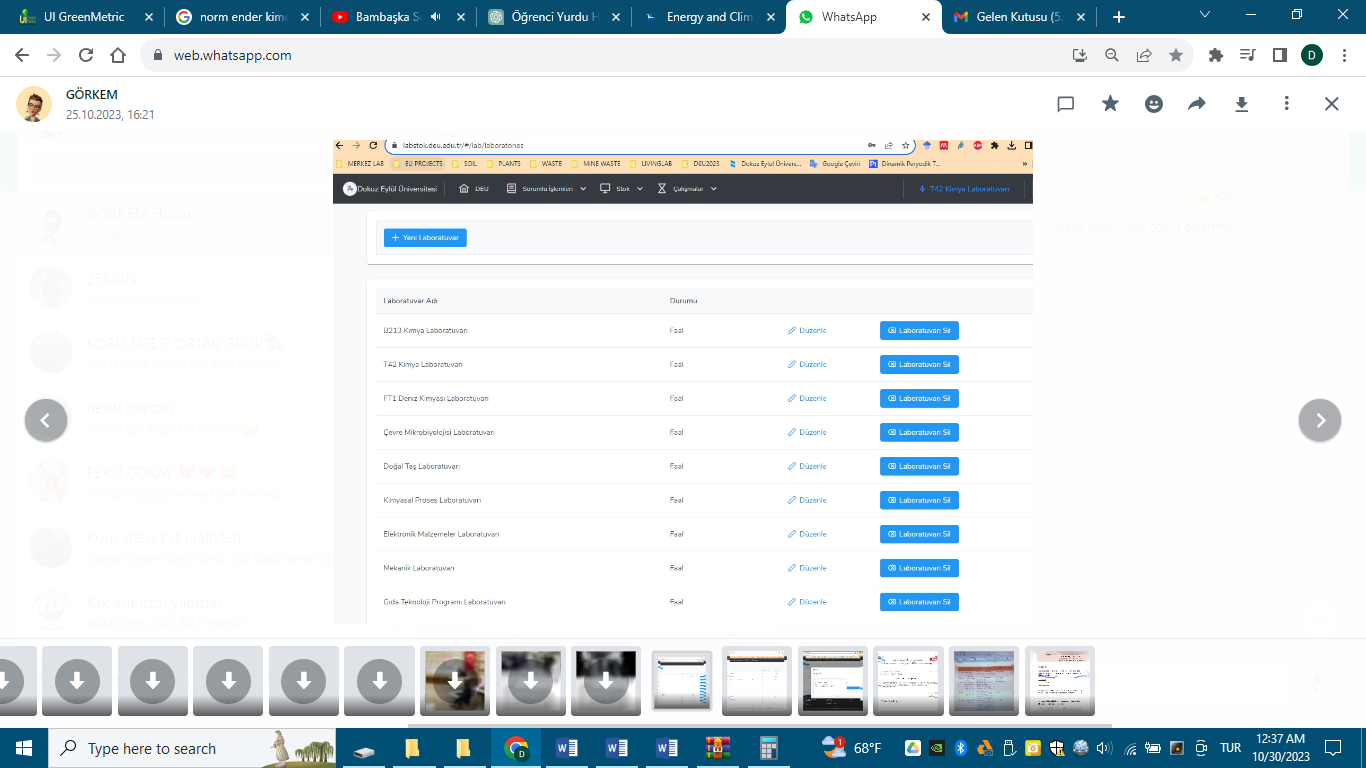
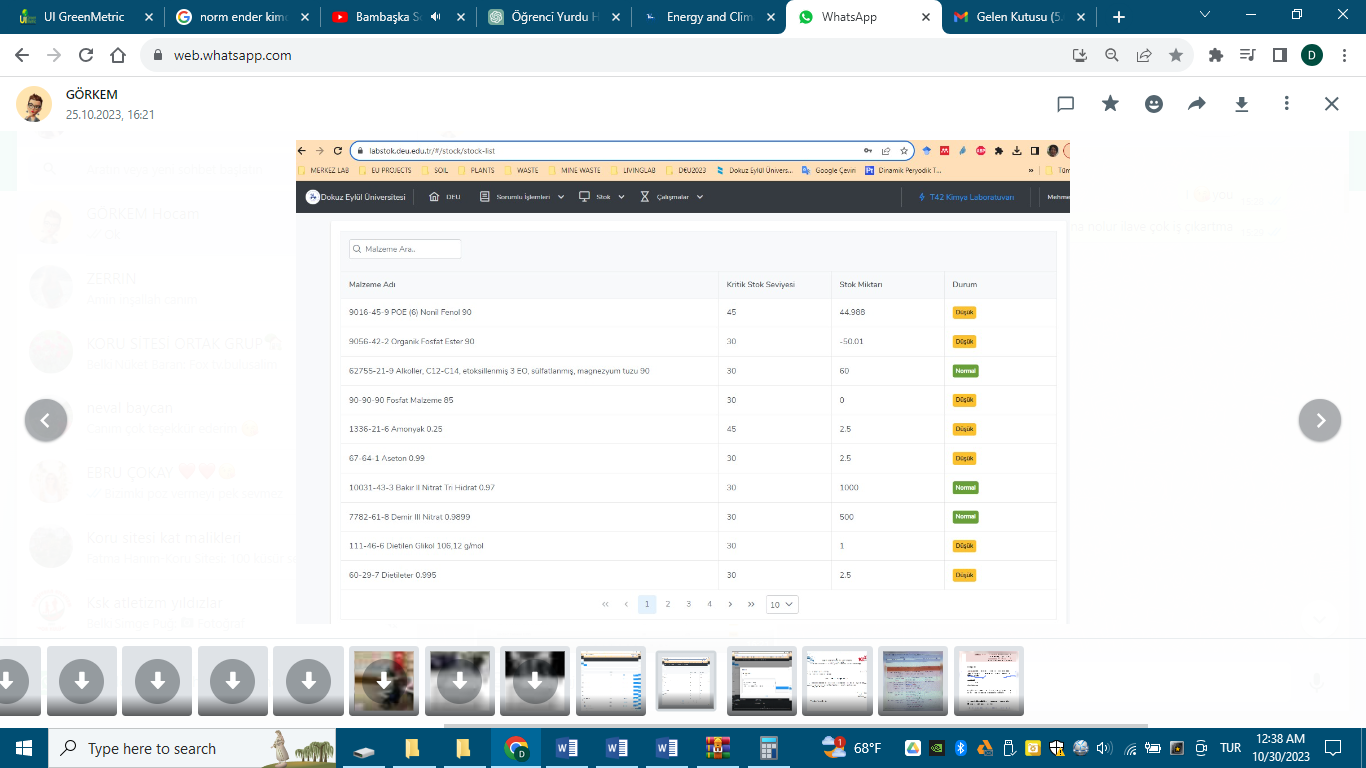
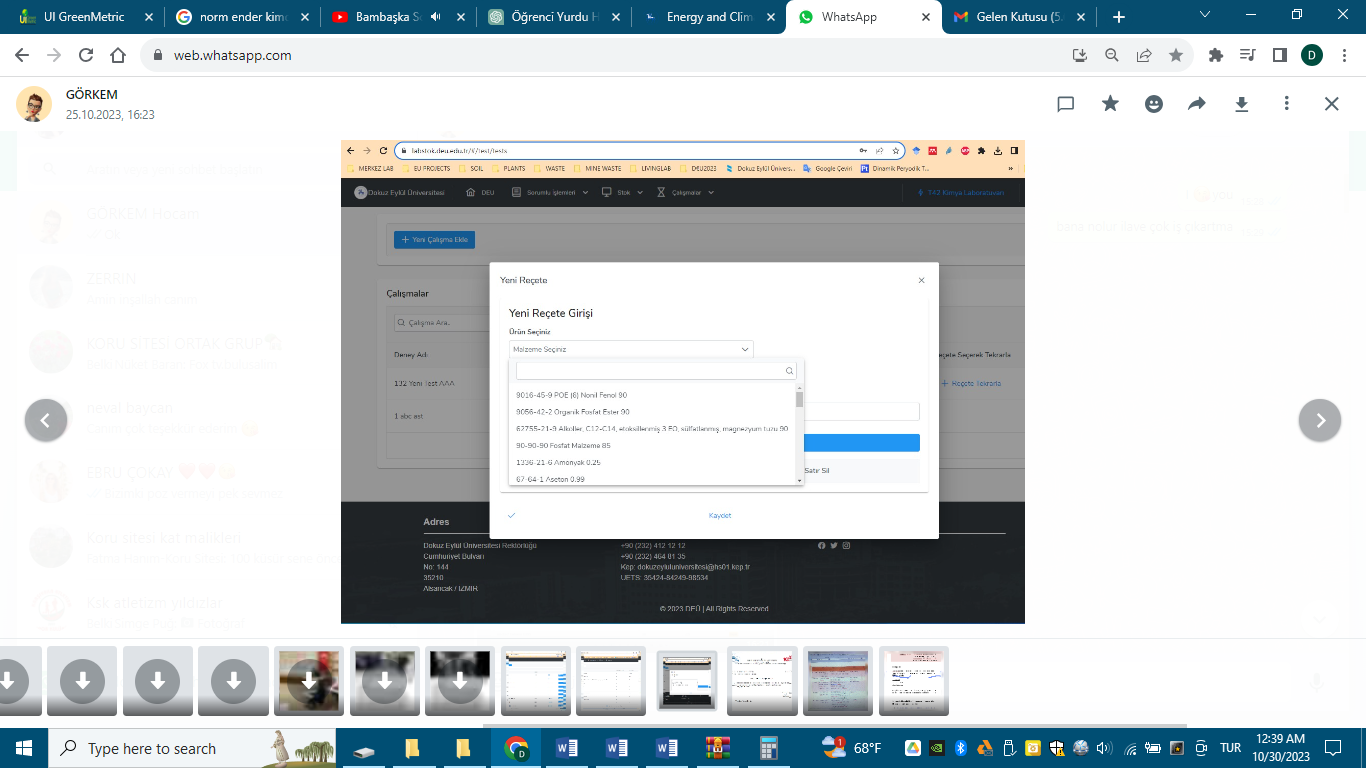
Laboratory stock system intefaces
Educational Seminars given by the Academic Units
| Date of the Seminar | Academic Unit |
| May 17, 2023 | Faculty of Nursery (Personnel) |
| March 9, 2023
March 17, 2023 |
Faculty of Maritime (Pesonnel)
Faculty of Maritime (Studentl |
| May 25, 2023 | Institute of Health Sciences (Personnel) |
| May 18, 2023 | Faculty of Management |
| May 22, 2023 | Faculty of Literature |
| May 11, 2023 | FAculty of Social Sciences |
| May 24, 2023 | Vocational School of Foreign Languages |
| January 12, 2023 | Institute of Marine Sciences and Technology |
| May 11, 2023 | Institute of Ataturk’s Principles and History of Turkish Revolution |
| May 18, 2023 | Medical School (Personnel) |
| September 14, October 3,4, 2023 | Medical School (Students) |
| May 21, 2023 | Izmir Vocational Schhol |
| March 1, 2023 | Faculty of Architecture |
| May 22, 2023 | Institute of Educational Sciences |
| May 18, 2023 | FAculty of Economic and Administrative Sciences |
| MArch 6, 2023 | Necat Hepkon Faculty of Sports Sciences |
| May 17, 2023 | Graduate School of Natıral and Applied Sciences |
| MArch 15, 2023 | Bergama Vocational School |
| May 16, 2023 | Faculty of Buca Educational School |
| May 16, 2023 | Izmir International Biomedicine and Genome Center |
| May 8, 2023 | Institute of Fine Arts, FaApril 13, 2023culty of Fine Arts |
| April 13, 2023 | Faculty of Science |
| March 29, 2023 | Faculty of Densitry |
| MArch 10-17, 2023 | Faculty of Physical Therapy and Rehabilitation |
| February 2, 2023 | Torbalı Vocational School |
| February 22, 2023 | Textile Enginnering |
| March 3, 2023 | Mechanical Engineering |
| February 24, 2023 | Mining Engineering |
| March 27, 2023 | Geophysics Engineering |
| February 8, 15, 2023
March 17, 2023 |
Computer Engineering (Personnel)
Computer Engineering (Students ) |
| March 13, 16, 17, 2023 | Efes Vocational SChool |
| March 14, 2023 | Faculty of LAw |
| March 6, 2023
March 7, 9, 13, 16, 2023 |
Environmental Engineering (Personnel)
Environmental Engineering (Students) |
| March 7, 2023
March 14, 2023 |
Vocational School of Justice (Personnel)
Vocational School of Justice (Students) |
[3.2] Program to Reduce the Use of Paper and Plastic on Campus (WS.2)
Dokuz Eylul University has set a target of reducing individual paper and plastic waste production on its campuses by a minimum of 15%. To achieve this goal, educational seminars and training programs are being implemented, with a focus on raising awareness among students and staff about the importance of reducing plastic and paper usage not only within the campuses but also in their daily lives. While resource separation for recycling is crucial for conserving materials and energy, it’s worth noting that recycling itself has its own carbon footprint. That’s why waste reduction is an essential step in preserving the world’s resources and reducing greenhouse gas emissions. To fulfill this objective:
- Promotional materials have been developed and distributed to encourage the reduction of plastic and paper waste. Students are being educated about the environmental and economic advantages of using reusable cups and mugs.
- Training sessions provided to canteen and cafeteria operators have led to a successful collaboration. Now, students can enjoy discounted prices on hot beverages when they bring their reusable cups. All operators have embraced this idea and put it into practice.
- DEU’s official e-document management system has been recently updated, preventing the printing of documents from the new system. This digital system, known as BELGENET, was initiated in 2021 and has become the primary means of institutional communication. Additionally, corporate data sharing is restricted to defined corporate email addresses.
- Dokuz Eylul University encompasses around 90 academic units, including faculties, institutes, vocational schools, hospitals, and research centers. Correspondence within these units is transitioning to digital methods, resulting in an annual reduction of approximately 3.5 million pages of paper waste. This is equivalent to saving 6,912 A4 paper reams, weighing 17.3 tons. As a result, 1,248,000 pages (equal to 6.24 tons) of the total 17.3 tons of paper saved annually at our university will be conserved on the Tınaztepe Campus.
- Water fountains across our campuses promote the use of refillable water bottles among students and staff, reducing the consumption of PET bottles a
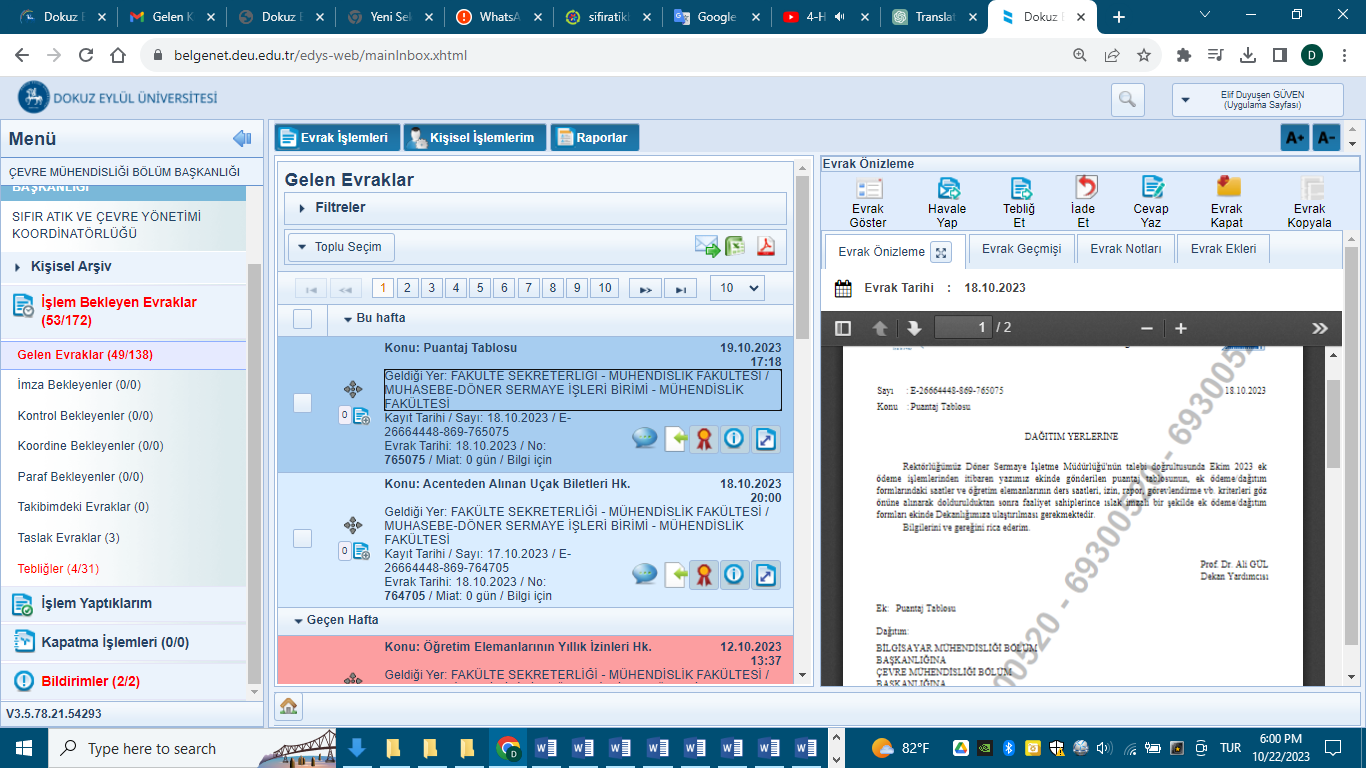 |
|
| DEU Electronic Document Management System -BELGENET | |
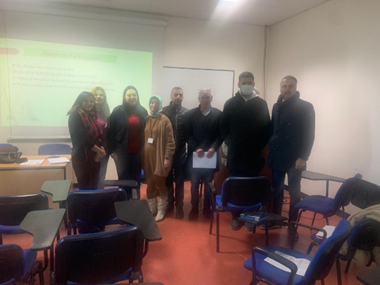 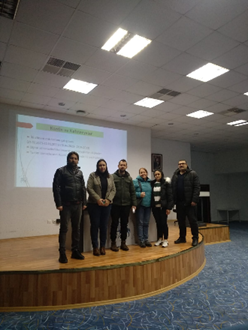 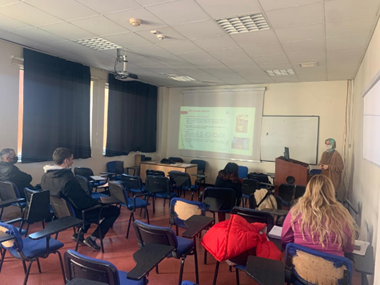 |
|
| Trainings for Canteen and Cafeteria Managers | |
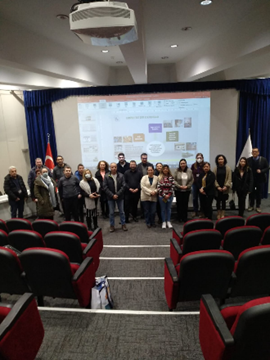 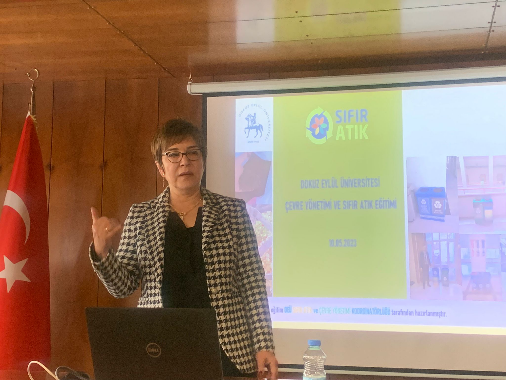 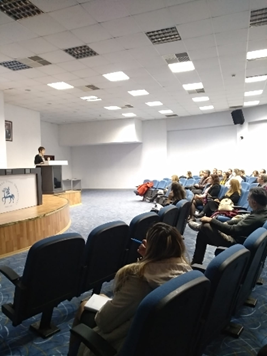 |
|
| Trainings with the University Staff | |
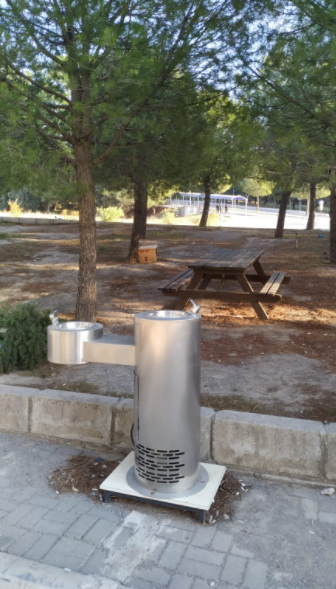 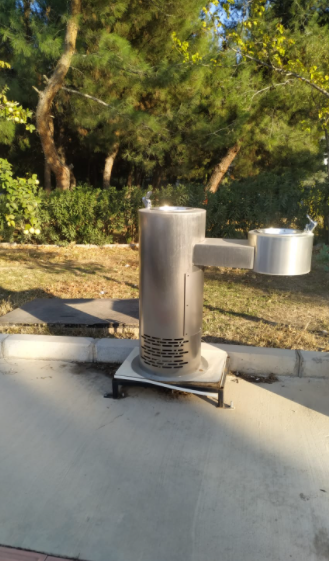 |
|
| Water Fountains in the Campuses | |
[3.3] Total volume of organic waste produced (tons)
A pilot study has been conducted in kitchens on the university campuses to assess organic waste generation. During this study, weighing of biodegradable waste generated in the kitchens was carried out over three sampling periods of two weeks each. Based on the daily waste generation, the annual amount of organic waste was calculated. As a result of this weighing process, it was found that the Tınaztepe Campus Kitchen, which serves two major campus kitchens, produces 45.8 kg of organic waste per day, while the Rectorate Kitchen, which is used by administrative staff and management, generates 16.6 kg of biodegradable waste per day.
Consequently, an annual total of 14.9 tons of organic waste is generated.
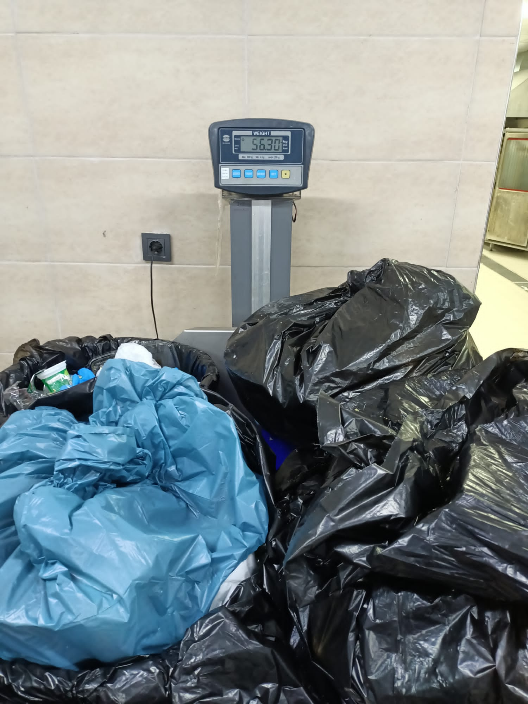 |
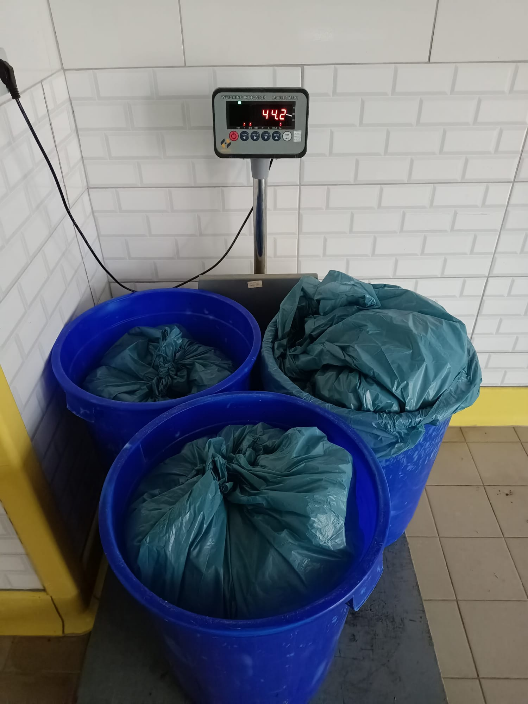 |
| Biodegradable Waste Weighing Images from Tınaztepe Kitchen | |
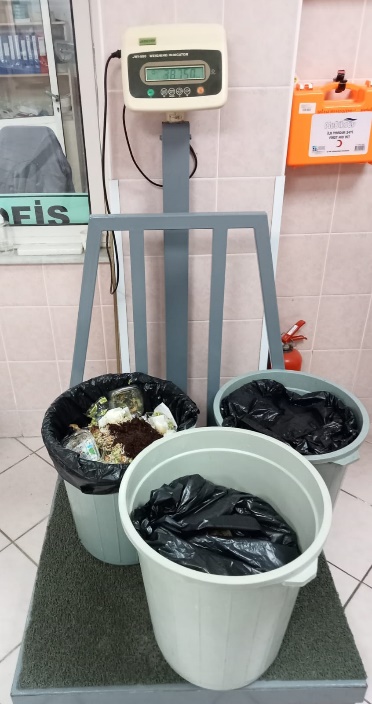 |
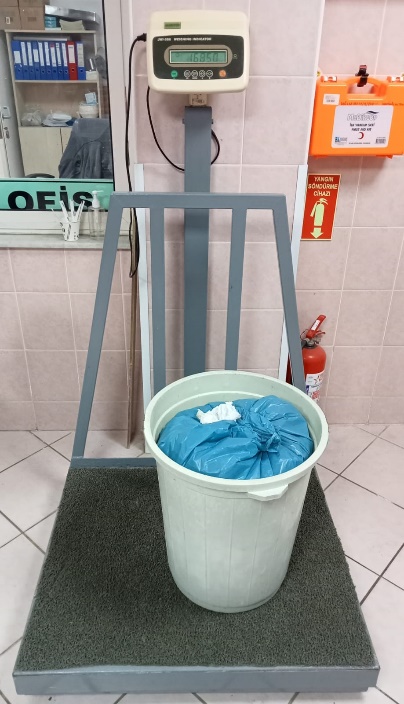 |
| Biodegradable Waste Weighing Images from Tınaztepe Kitchen | |
[3.4] Total volume organic waste treated (tons)
With the compost machine granted to Dokuz Eylül University by the Ministry of Environment, Urbanization, and Climate Change in 2022, a record of 4,635 kg (4.635 tons) of biodegradable vegetable peeling waste was directed to the composting process from July 2022 to the end of December 2022 at various locations, including Tınaztepe Campus, Faculty of Medicine Cafeteria, Dokuzçeşmeler Campus, and the Rectorate Cafeteria. Consequently, a total of 4.65 tons of organic waste was treated in the year 2022.
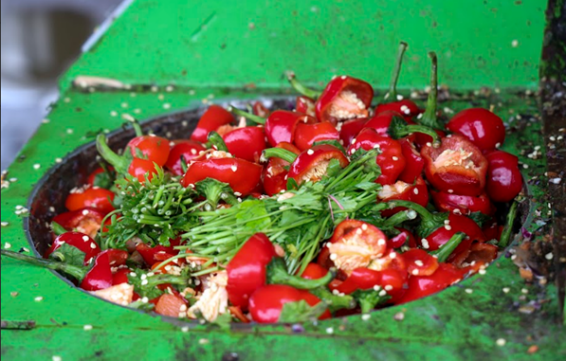
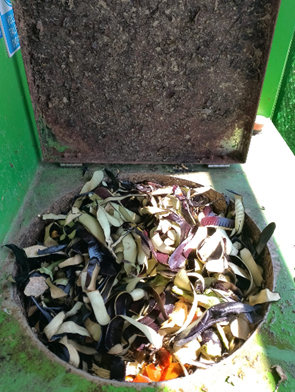
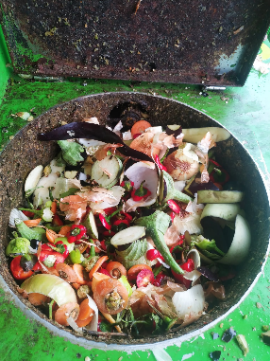
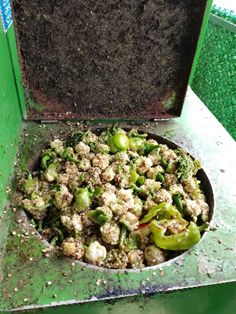
Biodegradable waste loaded into the compost machine
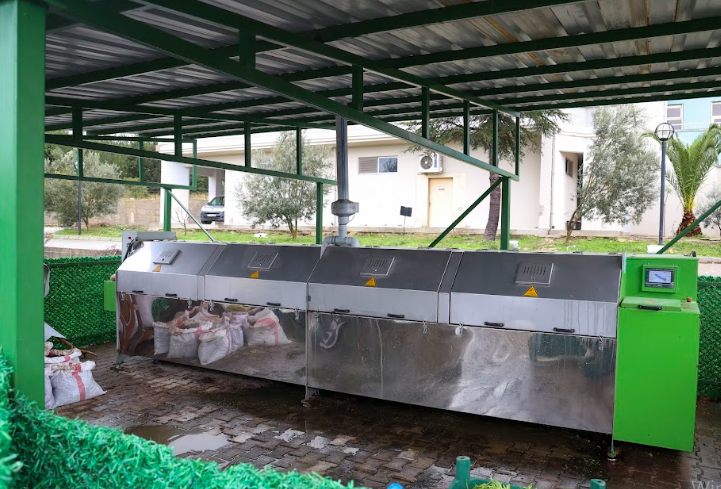
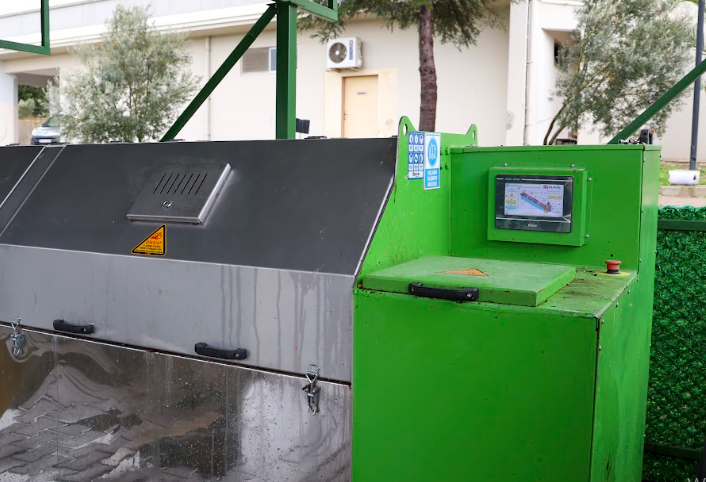
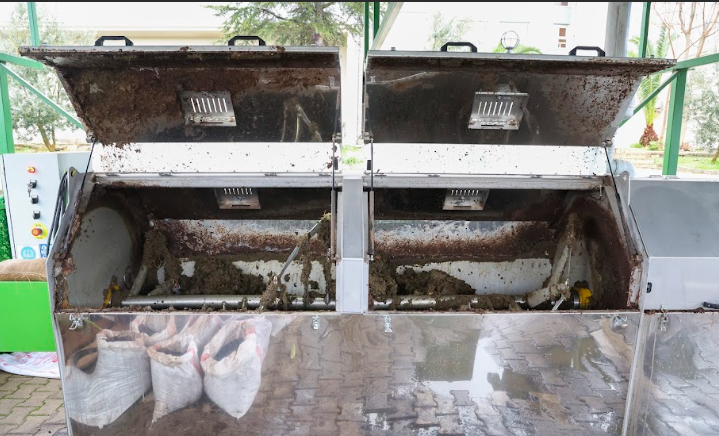
Compost machine, pannel and fermentation tank
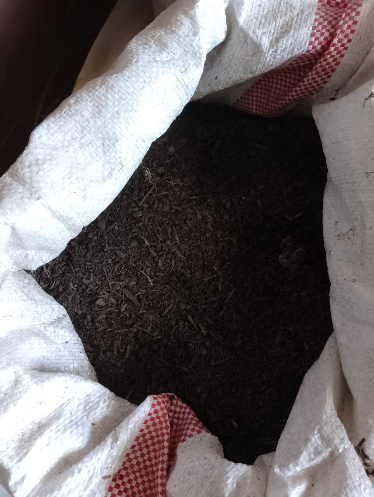
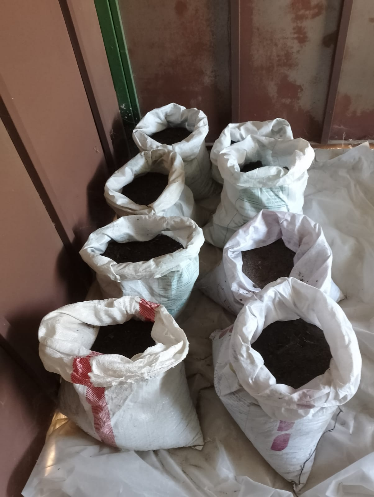
Produced compost
[3.5] Organic waste treatment (WS.3)
Utilizing the compost machine generously provided to Dokuz Eylül University by the Ministry of Environment, Urbanization, and Climate Change in 2022, a total of 4,635 kilograms (4.635 metric tons) of biodegradable vegetable waste, documented as part of the composting process, was redirected from Tınaztepe Campus, the Faculty of Medicine cafeteria, Dokuzçeşmeler Campus, and the Rectorate Dining Hall. This practice began in July 2022 and continued until the end of December. This waste was effectively utilized in the production of compost. When considering that the total organic waste generated in campus kitchens amounts to 14.9 tons, the treated organic waste accounts for 31,1% of the total organic waste.
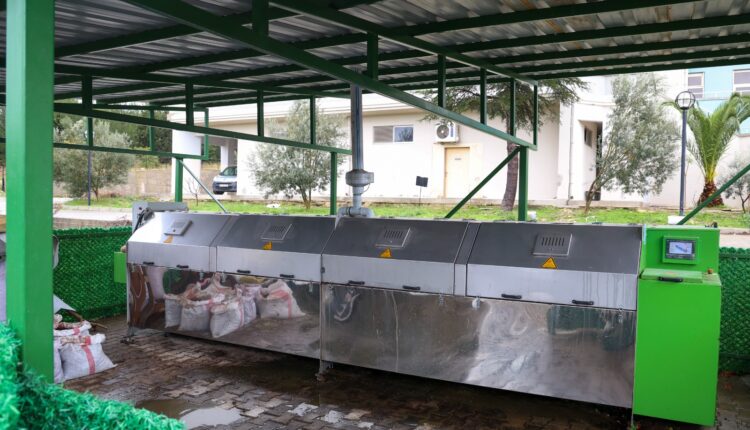
DEU Compost Machine
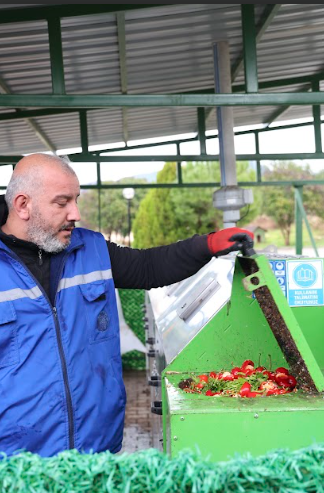
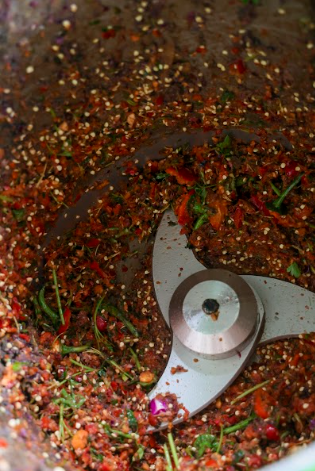
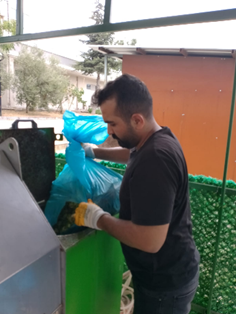
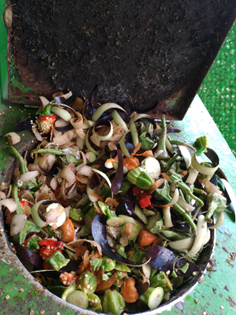
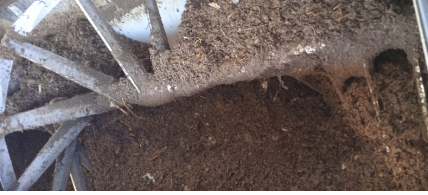
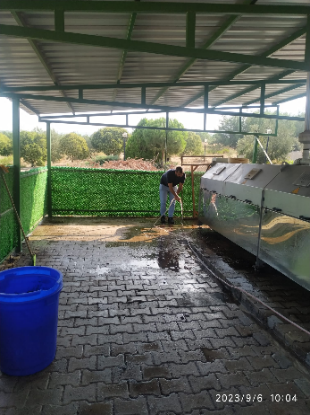
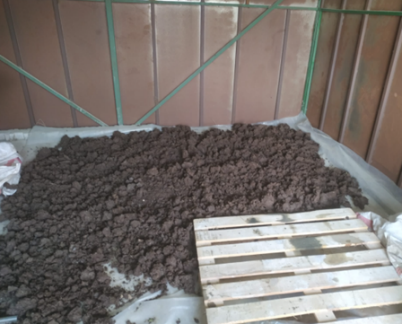
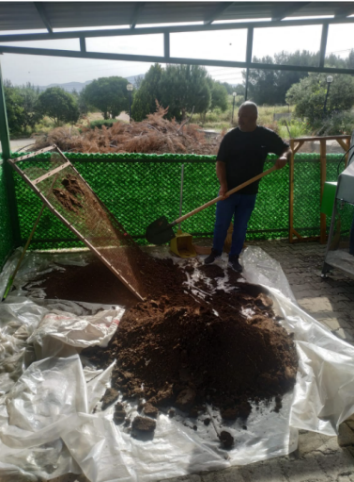
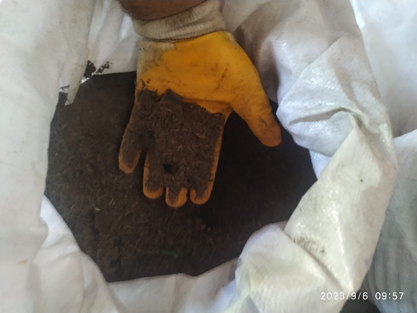
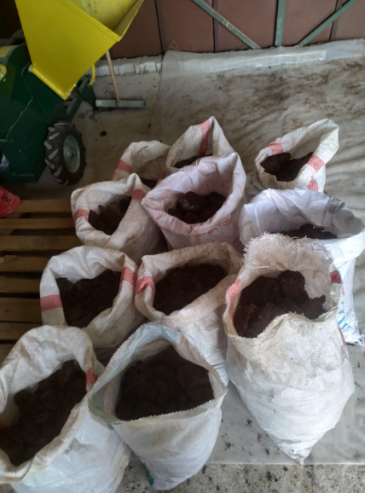
Images from various steps of composting process
[3.6] Total volume of the inorganic waste produced (tones)
Dokuz Eylül University was integrated into the zero waste management system in 2019. The Zero Waste project encompasses detailed waste management programs, including waste recycling, waste reduction, waste recovery, and the management of hazardous and toxic waste, as set forth by the Ministry of Environment, Urbanization, and Climate Change of the Republic of Turkey. The primary focus of the system is the separate collection of waste at its source, its safe transfer to temporary storage areas, and the use of methods during temporary storage that do not pose risks or harm the environment and human health.
As part of this initiative, separate waste collection bins have been placed in academic units and communal areas on our university campuses. Recyclable inorganic waste materials, such as glass, plastic, paper-cardboard, and metal, are collected separately from other waste types. Separate collection bins have been placed in buildings, waste collection centers have been established in open areas, and temporary waste storage areas have been constructed.
As a result of this integrated system, a total of 312 tons of inorganic waste was generated in 2022, which was subsequently collected by a recycling company. The inorganic recyclable waste generated is regularly recorded in the Integrated Environmental Information System belonging to the Ministry of Environment, Urbanization, and Climate Change.
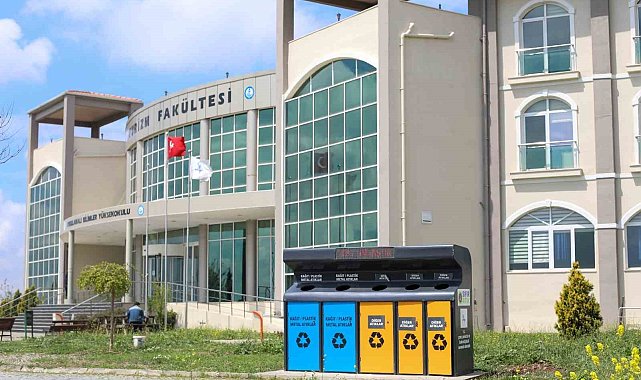
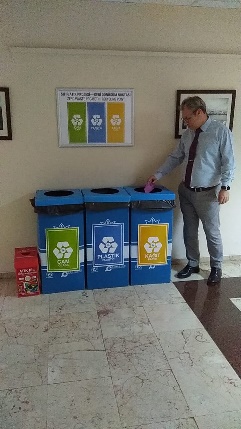
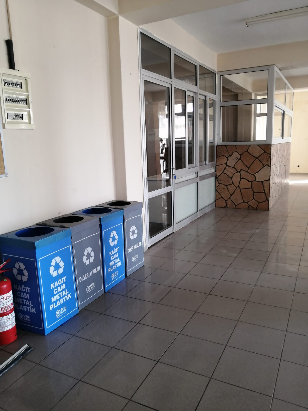
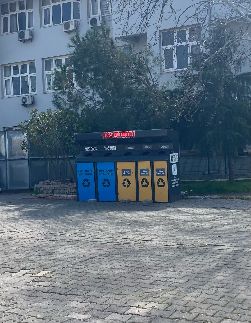
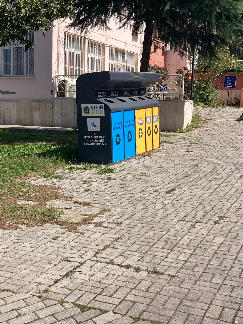
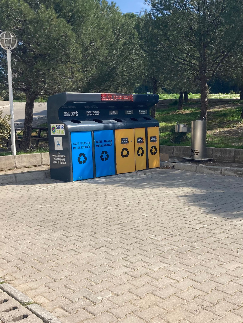
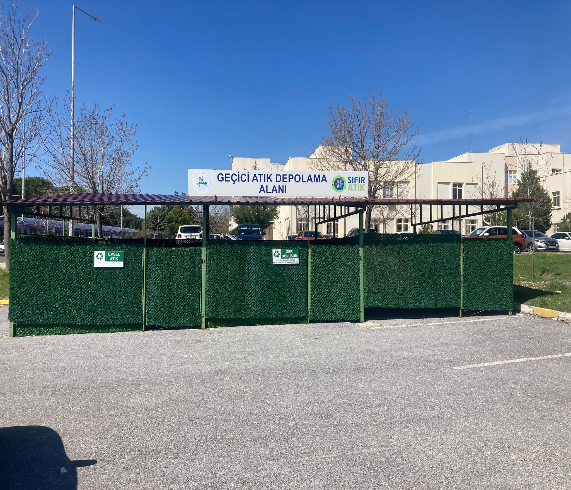
Seperate collection systems in DEU campuses
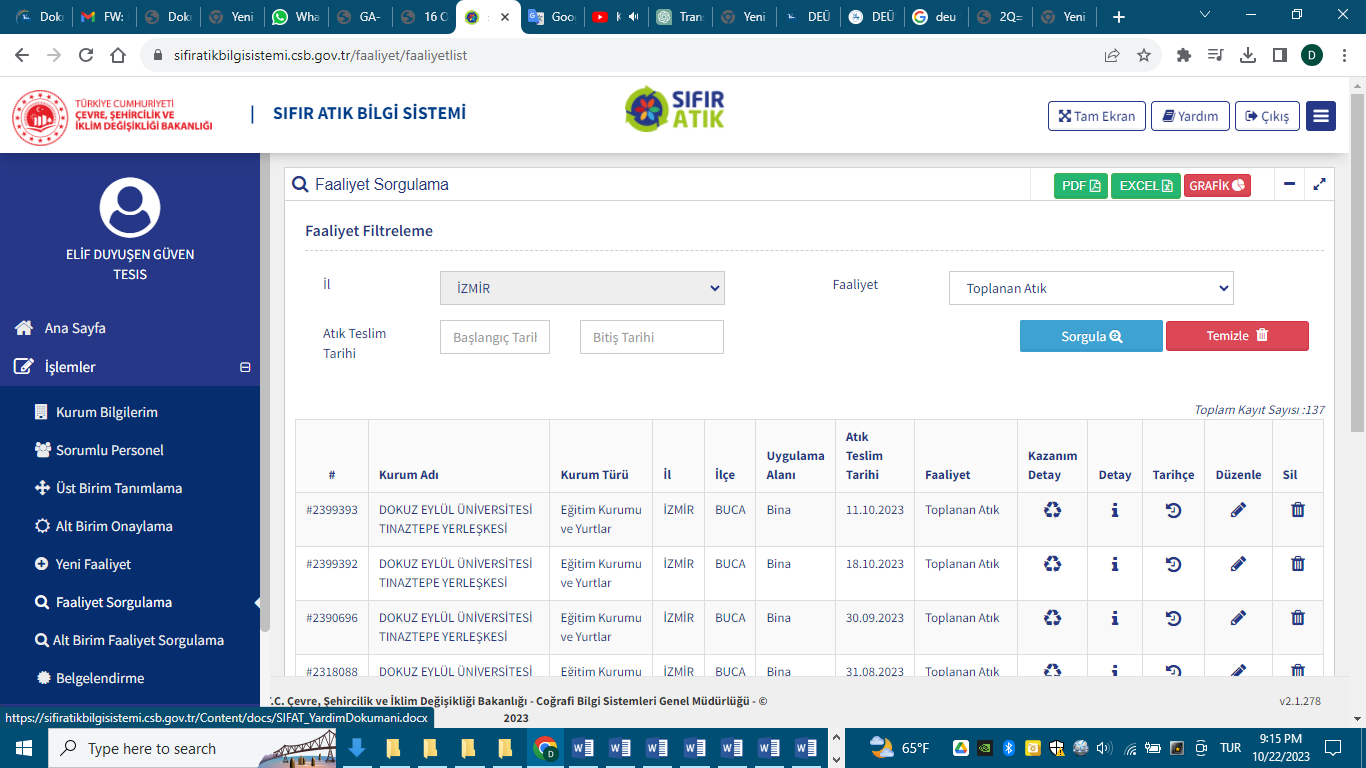
Interface of the Environmental Information System
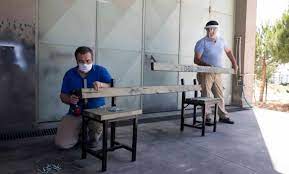
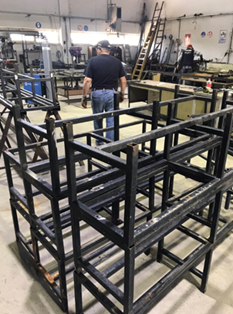
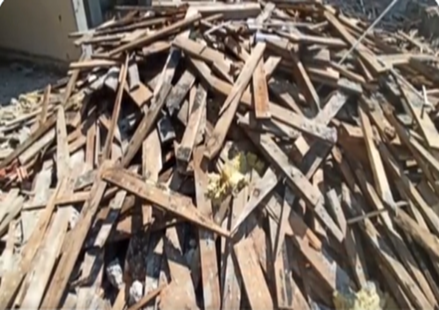
Inorganic waste recycling in Technical Ateliers of DEU
[3.7] Total volume of the inorganic waste treated (tones)
At Dokuz Eylul University, all recyclable inorganic waste materials are collected and processed by a licensed recycling company contracted by the university. Therefore all produced 312.1 tons of inorganic recyclable wasted are treated.
Within Dokuz Eylul University (DEU), the Directorate of Information Technologies, which manages registered computers and various electronic equipment in its inventory, faces the end of service life for many of these items, as well as numerous electronic malfunctions. Initiated in 2018, the project aims to manage electronic waste generated within DEU in alignment with the Zero Waste goals, the service quality processes of the Directorate of Information Technologies, the university’s strategic objectives, and sustainability goals, all through efficient and effective use of public resources.
To achieve this, the Directorate of Information Technologies and the campus coordinations in different areas of the university have initiated efforts to reclaim and reuse functional parts from electronic waste items that have been rendered inoperable and removed from the inventory. A total of 30 different electronic components, such as SSD cards, CPUs, Ethernet cards, fans, power supplies, mice, keyboards, and the like, are separated from electronic waste with scrap characteristics. They are then subjected to suitability/performance tests for reuse, categorized based on their type and specifications, and recorded. At the end of this stage, electronic waste items that no longer contain parts suitable for reuse are provided to the Machine Chemistry Industry free of charge. As a result, all electronic waste is either reused or recycled. In 2022, a total of 671 pieces of electronic materials were recycled
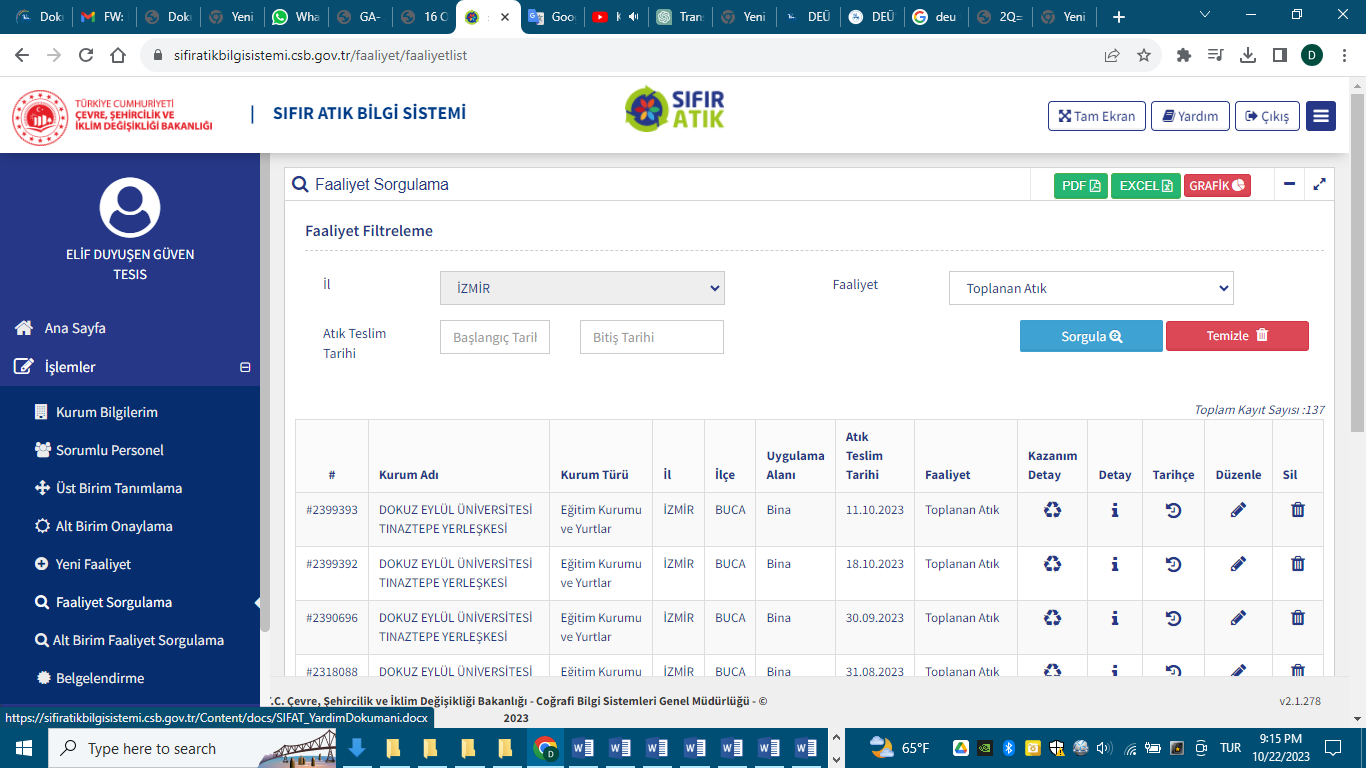
Interface of the Environmental Information System
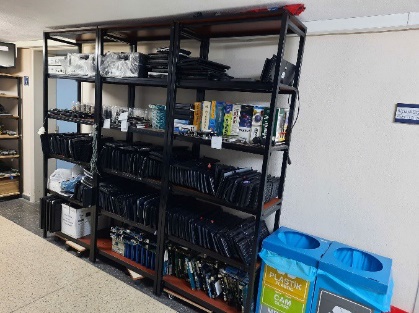
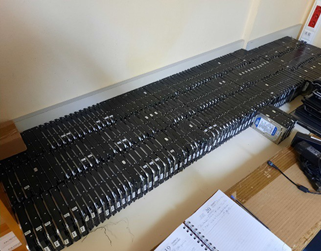
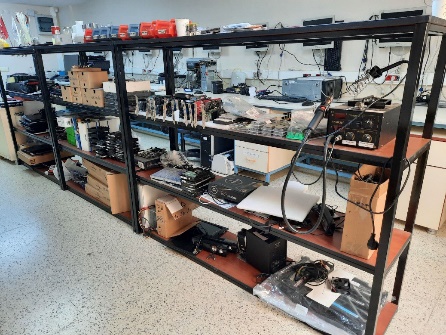
Computer pieces recycled
[3.8] Inorganic waste treatment (WS.4)
Description:
Dokuz Eylul University follows a sustainable waste management approach by engaging a licensed recycling company to collect and process all recyclable inorganic waste materials, thus ensuring the treatment of the entire 312.1 tons of inorganic recyclable waste generated. As a result, the university successfully promotes the reuse and recycling of electronic waste items. In 2022 alone, a total of 671 electronic components were reprocessed.
DEU has implemented comprehensive (>75%) treatment measures for its inorganic waste, exemplifying its commitment to responsible waste management.
[3.9] Total volume of the toxic waste produced (tons)
handling of hazardous and medical waste materials originating from various areas within the university.
Items such as WEEE (Waste Electrical and Electronic Equipment), defective equipment, and similar waste are diligently segregated within DEU buildings. They are subsequently transported to designated Temporary Storage Areas located on our campuses. These storage areas are purposefully designed in compliance with Turkish Waste Framework Regulations. Ink/toner cartridges from printers, printing plant batteries, fluorescent lamps, inks, adhesives, and the like are collected separately, with each item categorized according to its specific waste code. These materials are then stored in designated temporary storage areas, which adhere to regulatory standards.
On DEU campuses, the systematic segregation, collection, and accumulation of waste chemicals and hazardous materials occur at the source. Toxic waste materials may be stored in Hazardous Waste Temporary Storage Areas for a maximum duration of 180 days. These storage areas, located throughout our university campuses, are constructed to meet the technical specifications outlined in the Waste Management Regulation.
Within DEU Campuses, a total of 760.6 tons of medical waste was generated in 2022, alongside 43.3 tons of other hazardous waste produced on the campuses. These figures have been duly documented and recorded in the Integrated Environmental Information System under the jurisdiction of the Ministry of Environment, Urbanization, and Climate Change.
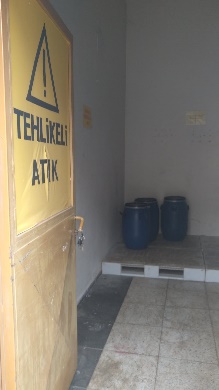
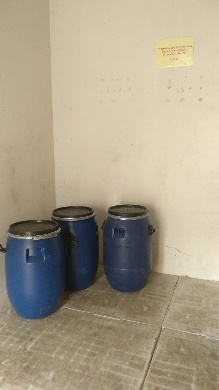
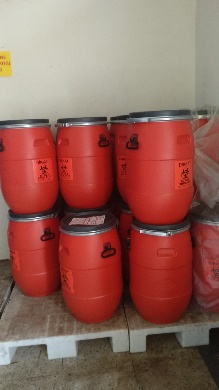
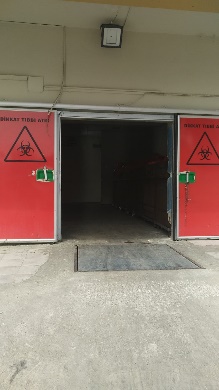
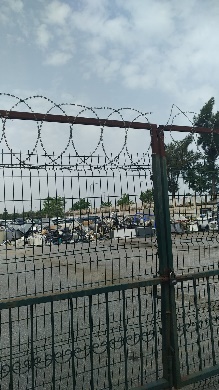
Hazardous Waste and Medical Waste Temporary Storage Area at DEU Hospital
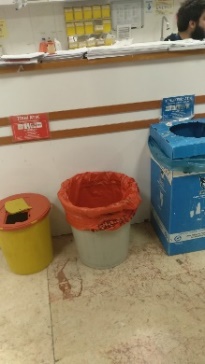
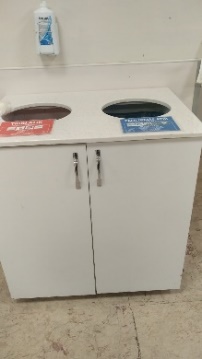
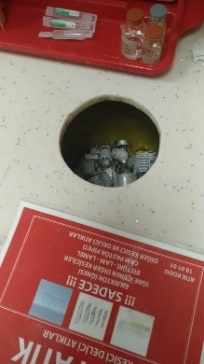
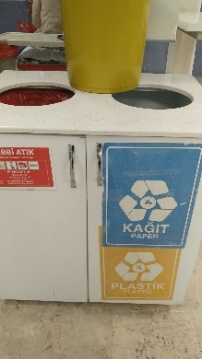
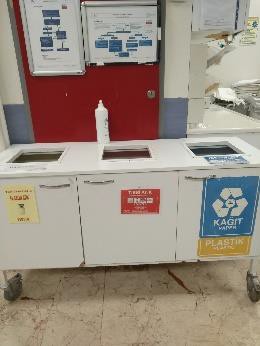
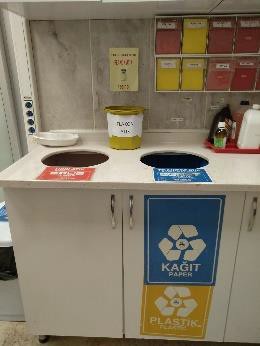
Seperate collection in some units of DEU Hospital
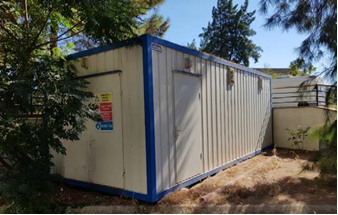
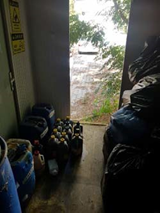
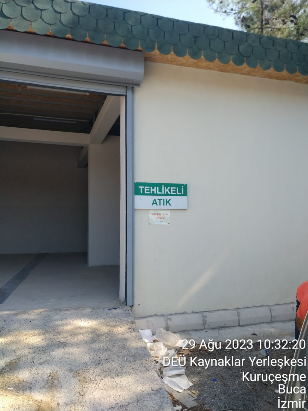
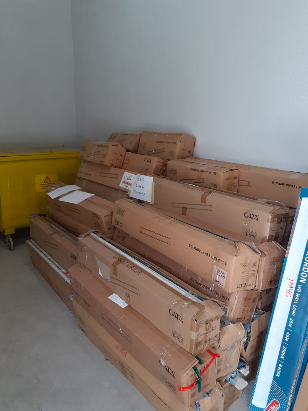
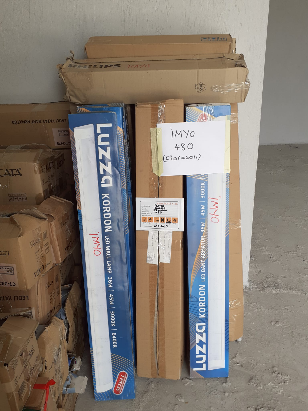
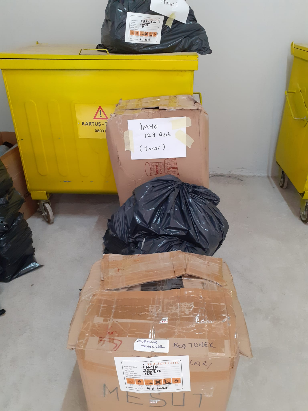
Hazardous waste temporary storage areas at Tınaztepe Campus
[3.10] Total volume of the toxic waste treated (tons)
DEU has established agreements with licensed companies for the collection and proper disposal of hazardous waste on campus. All toxic waste materials are promptly transferred before the expiration of the stipulated storage period.
Within DEU Campuses, a total of 760.6 tons of medical waste and 43.3 tons of other hazardous waste produced on the campuses were treated in 2022. These values were documented and recorded in the Integrated Environmental Information System under the jurisdiction of the Ministry of Environment, Urbanization, and Climate Change.
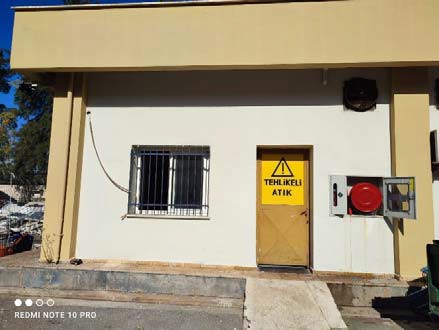
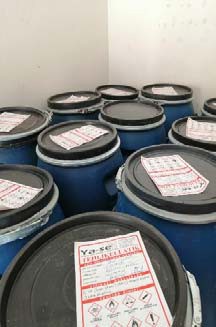
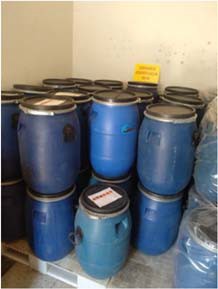
Hazardous Waste and Medical Waste Temporary Storage Area at DEU Hospital
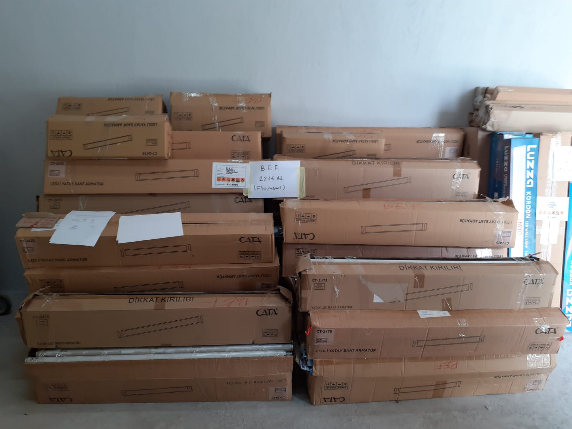
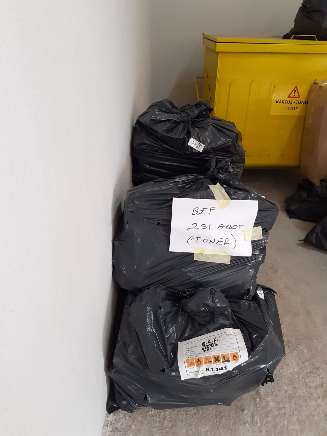
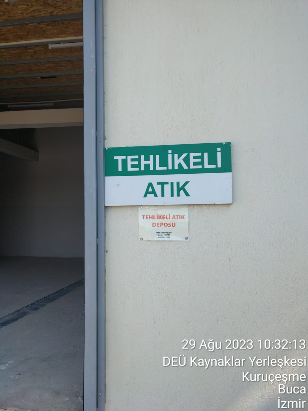
Hazardous waste temporary storage areas at Tınaztepe Campus
[3.11] Toxic waste treatment (WS.5)
Dokuz Eylul University follows a sustainable waste management approach by engaging a licensed recycling company to collect and process all toxic wastes materials, thus ensuring the treatment of the entire 760,6 tons of infected wastes and 43,3 tones of hazardous wastes..
Therefore, DEU has implemented comprehensive (>75%) treatment for toxic wastes.
[3.6] Sewage disposal (WS.6)
There are two grease interceptor treatment systems in the Faculty of Medicine Student Cafeteria and the Tınaztepe Campus Social Facilities Cafeteria. The combined daily treatment capacity of these facilities is 68.4 m3 per hour, and the cafeterias operated for 249 working days in 2022. The daily active usage period of these facilities is 8 hours. Therefore, the total volume of treated water for 2022 amounted to 136,253 m3. However, this water is not utilized and is discharged into the sewer network. Wastewater originating from the university campus dining halls is treated in wastewater management facilities to ensure compliance with the İZSU sewer discharge standards before being discharged into the sewer system. The grit chamber pre-treatment facility at the Tınaztepe campus is currently operational. In the case of the pre-treatment plant and wastewater management for the cafeterias at the 15 July Health Campus, construction is currently in progress.
The sewerage system in our city is managed by the Izmir Municipality’s İZSU Branch. The municipality has established the necessary wastewater collection network within our campuses. The wastewater collected from the campuses is then directed to a central, large-scale, and highly efficient wastewater treatment plant equipped with advanced treatment systems. As a result, the treated wastewater meets the quality standards required for reuse in irrigation purposes.
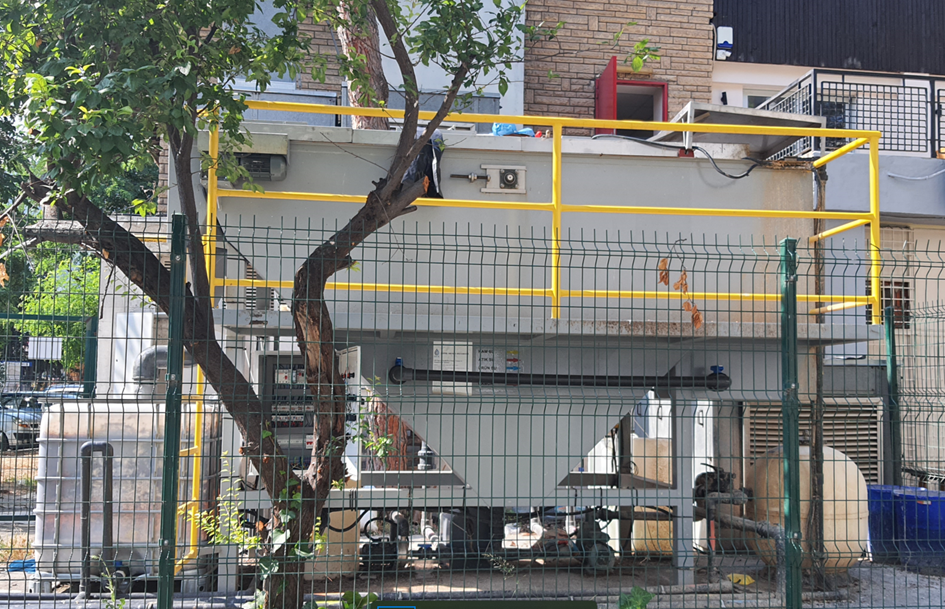 |
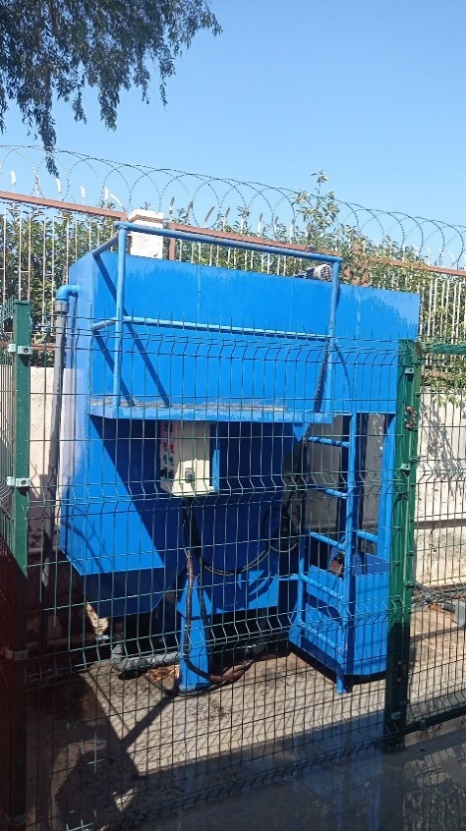 |
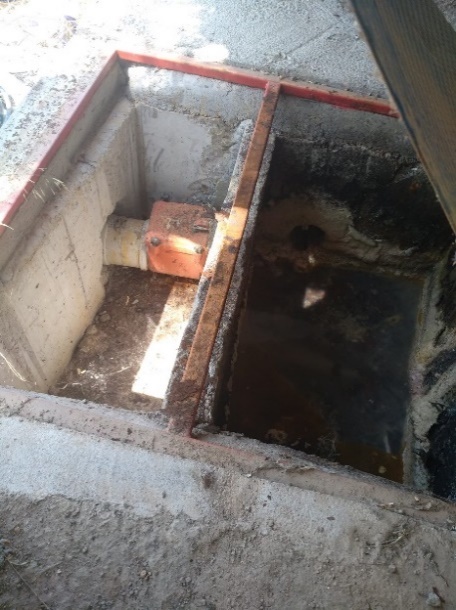 |
| Closed grit chamber systems for pre-treatment of wastewater to be discharged to the sewer system (15 Temmuz Health and Art Campus) | |
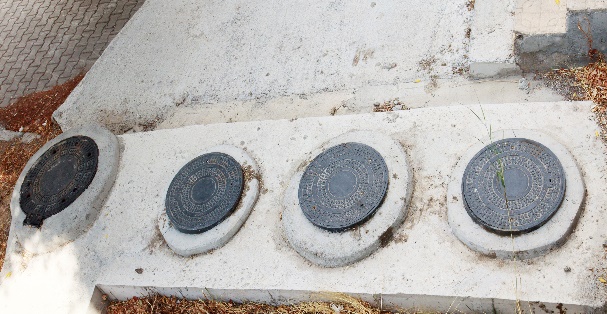 |
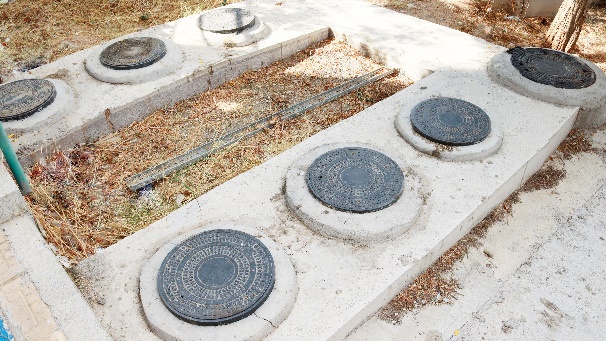 |
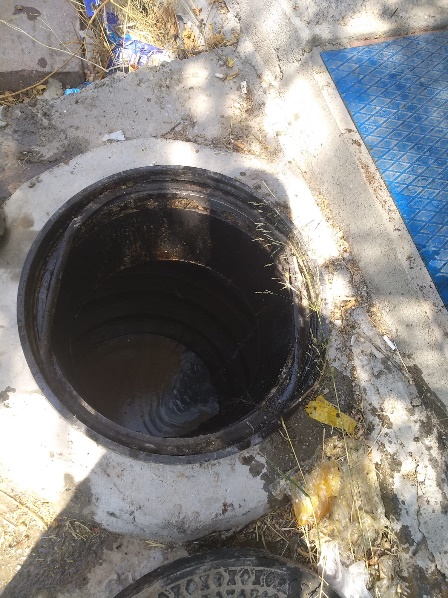 |
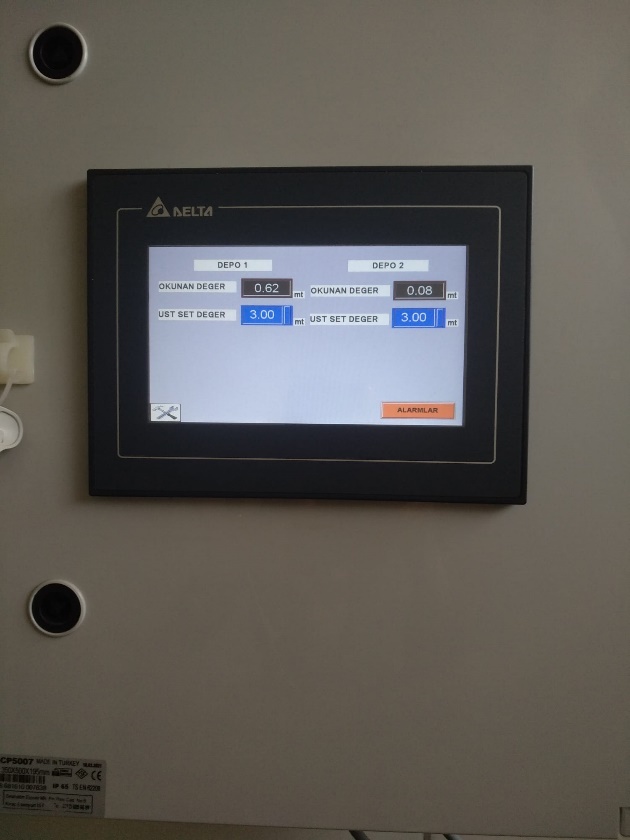 |
| Closed grit chamber system for pre-treatment of wastewater to be discharged to the sewer system (Tınaztepe Campus) | |
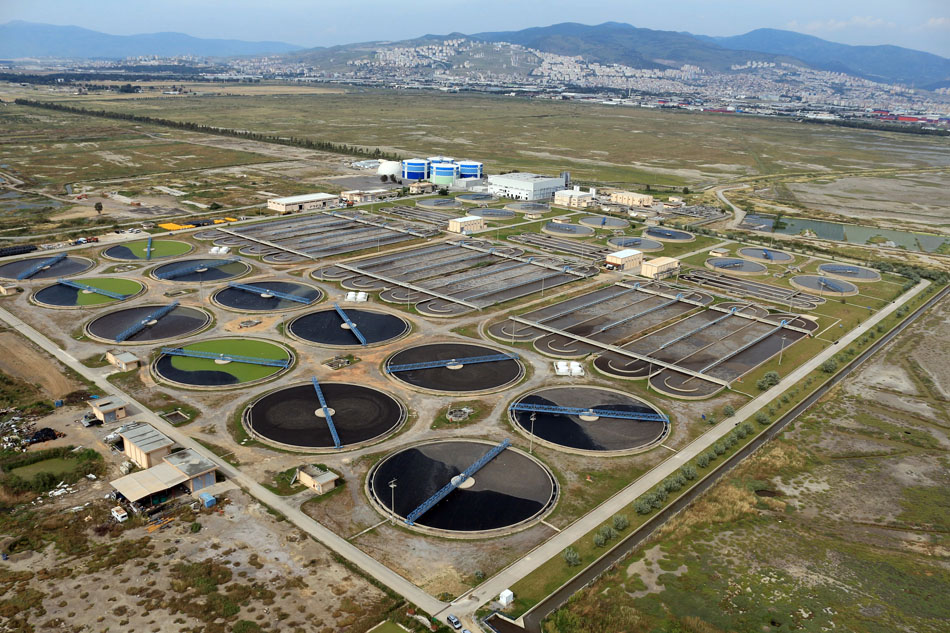
IZSU Wastewater Treatment Plant for Izmir city

